
ECRAFT PROFESSIONAL LABOR CATEGORY INFORMATION SHEETS
Labor Category
SCA Category
ACQUISITION MANAGEMENT SUPPORT
NO
GENERAL DUTIES OR EXPERIENCE:
Acquisition Management provides daily program, analytical, and acquisition management support to senior level
executives. Acquisition Management provides detail oriented management of records, business research
analysis, and valuation strategies. They may also be involved in various administrative tasks.
Acquisition Management should have strong computer, finance, and analytical skills. They will often work with
or lead teams.
ADDITIONAL REQUIREMENTS
None
Level
eCraft Title
eCraft Code
I
ACQUISITION MANAGEMENT SUPPORT I
AMS1
Typical Education:
Bachelor's level degree.
Typical Experience:
No required professional experience.
Additional Guidelines:
None
Level
eCraft Title
eCraft Code
II
ACQUISITION MANAGMENT SUPPORT II
AMS2
Typical Education:
Bachelor’s level degree.
Typical Experience:
3 years professional experience in acquisition management support.
Additional Guidelines:
None
Level
eCraft Title
eCraft Code
III
ACQUISITION MANAGMENT SUPPORT III
AMS3
Typical Education:
Bachelor’s level degree.
Typical Experience:
7 or more years professional experience in acquisition management support.
Additional Guidelines:
None
Labor Category
SCA Category
ANALYST, FINANCIAL SYSTEMS
NO
GENERAL DUTIES OR EXPERIENCE:

Primary task is providing advice and technical assistance in the preparation of annual budgets. Measure
organizational performance, assess the effects of various programs and policies on the budget.
Analysts examine budget estimates or proposals for completeness, accuracy, and conformance with established
procedures, regulations, and organizational objectives. May employ cost-benefit analysis to review financial
requests, assess program tradeoffs, and explore alternative funding methods. Examine past and current budgets
and research economic and financial developments that affect the organization’s spending.
Develop guidelines and policies governing the formulation and maintenance of budgets. May conduct training
sessions for company or government agency personnel regarding new budget procedures.
ADDITIONAL REQUIREMENTS
None
eCraft Title
eCraft Code
ANALYST, FINANCIAL SYSTEMS
ANFS
Typical Education:
Bachelor’s degree in business, finance, or accounting
Typical Experience:
3 years experience in a related field
Additional Guidelines:
None
Labor Category
SCA Category
ANALYST, MANAGEMENT
NO
GENERAL DUTIES OR EXPERIENCE:
Collect, review, and analyze information in order to make recommendations to the Government.
Define the nature and extent of problems. Analyze relevant data, which may include annual revenues,
employment, or expenditures. Interview managers and employees while observing their operations. Develop
solutions to problems. In the course of preparing recommendations, understand the nature of the organization,
the relationship it has with others in the Government, and its internal organization and culture. Prepare and
solve mathematical models.
Report findings and recommendations to the Government. Reports are usually submitted in writing, but oral
presentations regarding findings also are common. For some projects, management analysts are retained to help
implement the suggestions they have made.
ADDITIONAL REQUIREMENTS
None
Level
eCraft Title
eCraft Code
I
ANALYST, MANAGEMENT I
ANM1
Typical Education:
Bachelor's Degree in a business or technical field
Typical Experience:
3 years experience in engineering/science management, operations research analysis or financial/cost analysis
Additional Guidelines:
None
Level
eCraft Title
eCraft Code
II
ANALYST, MANAGEMENT II
ANM2
Typical Education:
Bachelor's Degree in a business or technical field
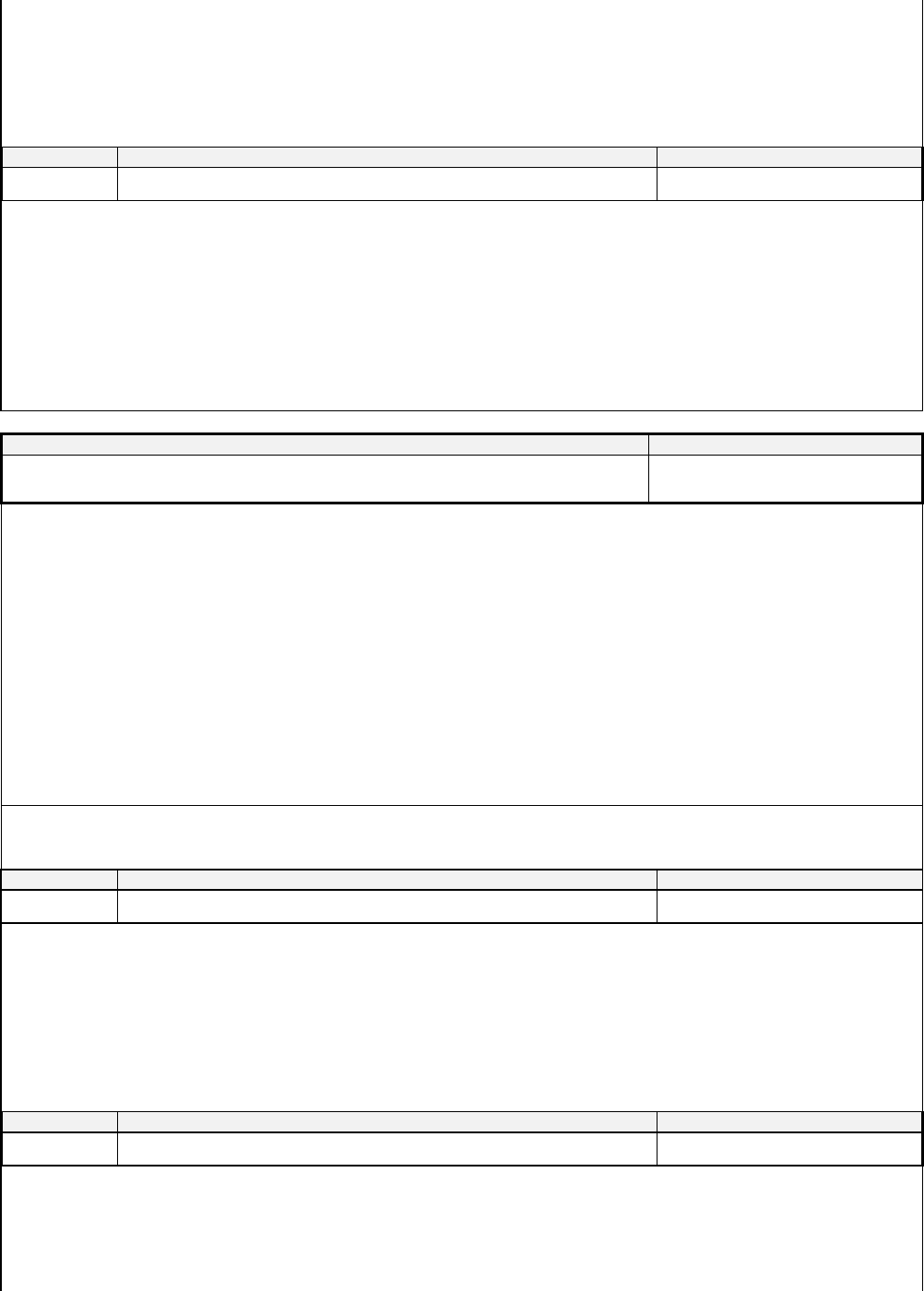
Typical Experience:
7 years experience in engineering/science management, operations research analysis or financial/cost analysis.
Significant experience in U.S. Navy programs or operations.
Additional Guidelines:
None
Level
eCraft Title
eCraft Code
III
ANALYST, MANAGEMENT III
ANM3
Typical Education:
Bachelor's or Advanced Degree in a business or technical field
Typical Experience:
10 or more years experience in engineering/science management, operations research analysis or financial/cost
analysis. Significant experience in U.S. Navy programs or operations.
Additional Guidelines:
None
Labor Category
SCA Category
ANALYST, OPERATIONS
NO
GENERAL DUTIES OR EXPERIENCE:
Operations research analysts help determine better ways to coordinate and manage large organizations that
require the effective use of money, materials, equipment, and people. This is accomplished by applying
analytical methods from mathematics, science, and engineering. Operations research analysts may be concerned
with diverse issues such as top-level strategy, planning, forecasting, resource allocation, performance
measurement, scheduling, the design of production facilities and systems, supply chain management, pricing,
transportation and distribution, and the analysis of large databases.
Analysts gather information, then select the most appropriate analytical technique. Analysts can use any of
several techniques, including simulation, linear and nonlinear programming, dynamic programming, queuing
and other stochastic-process models, and the analytic hierarchy process. Most techniques involve the
construction of mathematical models that attempt to describe the system being studied. The use of models
enables the analyst to assign values to the different components and clarify the relationships among them. The
values can be altered to examine what may happen to the system under different circumstances.
ADDITIONAL REQUIREMENTS
None
Level
eCraft Title
eCraft Code
I
ANALYST, OPERATIONS I
ANP1
Typical Education:
Bachelor's level degree in an Engineering discipline, Physics or Mathematics
Typical Experience:
3 years professional experience in operations research
Additional Guidelines:
None
Level
eCraft Title
eCraft Code
II
ANALYST, OPERATIONS II
ANP2
Typical Education:
Bachelor's level degree in an Engineering discipline, Physics or Mathematics
Typical Experience:
7 years professional experience in operations research
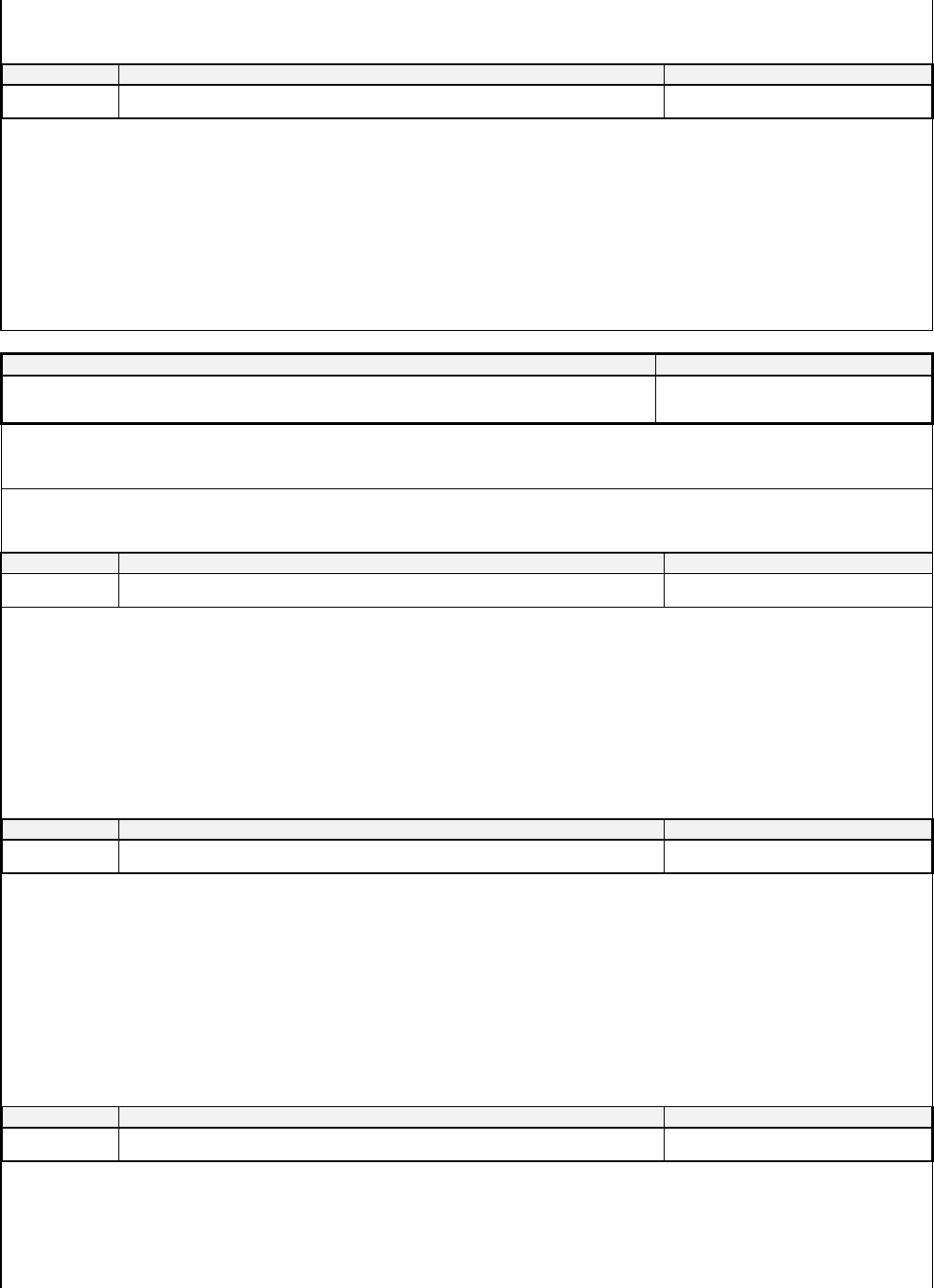
Additional Guidelines:
None
Level
eCraft Title
eCraft Code
III
ANALYST, OPERATIONS III
ANP3
Typical Education:
Bachelor's level degree in an Engineering discipline, Physics or Mathematics and a Master's level degree in
Operations Research or Mathematics
Typical Experience:
10 years professional experience in operations research
Additional Guidelines:
None
Labor Category
SCA Category
AUDIO VISUAL SPECIALISTS
NO
GENERAL DUTIES OR EXPERIENCE:
This guide describes specialists in audio visual productions.
ADDITIONAL REQUIREMENTS
None
Level
eCraft Title
eCraft Code
AUDIO VISUAL ANIMATOR
AVA
Typical Education:
Bachelor’s Degree in Fine Arts, design, graphics, animation or related fields
Typical Experience:
8 years experience in 2-D and 3-D animation software
Additional Guidelines:
Experience with animation projects that include TV spots and industrial sequences or experience as an animator
at a major animation company (i.e. Disney, etc).
Level
eCraft Title
eCraft Code
AUDIO VISUAL SCRIPT WRITER
AVSW
Typical Education:
Bachelor’s degree in English, Communications, Journalism or related fields
Typical Experience:
4 years experience in writing scripts for various media applications
Additional Guidelines:
Script writing experience in the production of: (1) CD-ROM-based training materials; (2) television
documentaries or news programs or news specials; or (3) sales presentations, marketing presentations, and the
like.
Level
eCraft Title
eCraft Code
I
AUDIO VISUAL DIRECTOR/PRODUCER I
AVDP1
Typical Education:
Bachelor’s degree in fine arts, communications, graphic design, or animation
Typical Experience:
2 years experience in directing or producing audio visual projects.

Additional Guidelines:
None
Level
eCraft Title
eCraft Code
II
AUDIO VISUAL DIRECTOR/PRODUCER II
AVDP2
Typical Education:
Bachelor’s degree in fine arts, communications, graphic design, or animation
Typical Experience:
5 years experience in directing or producing audio visual projects.
Additional Guidelines:
None
Labor Category
SCA Category
BOAT OPERATOR
NO
GENERAL DUTIES OR EXPERIENCE:
A boat operator is proficient with planning and executing maritime operations including support for U.S. Navy
sea trials. A boat operator steers and operates vessels using radios, depth finders, lights, and buoys. Boat
operators must be able to safely operate vessels in all weather conditions. Boat operators must be familiar with
all marine, Federal Coast Guard, state, and local rules and regulations.
A boat operator must be able to inspect the vessel to ensure safe operations. A boat operator conducts safety
drills with the crew. A boat operator is able to signal others to coordinate vehicle movement. A boat operator
communicates with others to coordinate material handling, rig tow lines, and vessel movement.
A boat operator records operational details of vessel travel.
ADDITIONAL REQUIREMENTS
U.S. Coast Guard Master License of 25 tons or greater. Two years of experience working with military small
boats and watercraft.
eCraft Title
eCraft Code
BOAT OPERATOR
BTO
Typical Education:
High school diploma or above.
Typical Experience:
Experience with Special Operations with the U.S. Navy; Experience in operating boats during salvage and rescue
operations; Experience in operating boats during sea trials.
Additional Guidelines:
None
Labor Category
SCA Category
CHEMIST
NO
GENERAL DUTIES OR EXPERIENCE:
Functions as a Chemist or Materials Scientist. May include analytical chemists, organic chemists, physical and
theoretical chemists, macromolecular chemists, physical and theoretical chemists (and others).
ADDITIONAL REQUIREMENTS

None
Level
eCraft Title
eCraft Code
I
CHEMIST I
CHEM1
Typical Education:
Bachelor's level degree in Chemistry
Typical Experience:
3 years professional experience
Additional Guidelines:
None
Level
eCraft Title
eCraft Code
II
CHEMIST II
CHEM2
Typical Education:
Master's level degree in Chemistry
Typical Experience:
7 years professional experience
Additional Guidelines:
None
Level
eCraft Title
eCraft Code
III
CHEMIST III
CHEM3
Typical Education:
Ph.D. degree in Chemistry
Typical Experience:
10 or more years professional experience.
Additional Guidelines:
None
Labor Category
SCA Category
COUNSELOR
NO
GENERAL DUTIES OR EXPERIENCE:
Counselors assist people with personal, family, educational, mental health, career decisions and other various
problems. Their duties depend on the individuals they serve and on the settings in which they work. Typical
counseling services include, but are not limited to, alcohol and drug prevention programs, conflict resolution,
domestic abuse and other family problems, assisting in career decisions, and job placement counseling.
ADDITIONAL REQUIREMENTS
None
eCraft Title
eCraft Code
COUNSELOR
CNSLR
Typical Education:
Master’s degree in Psychology, social work, counseling, or equivalent with appropriate state licensing.
Typical Experience:
3 years of experience providing counseling services.
Additional Guidelines:
None

Labor Category
SCA Category
ENGINEER
NO
GENERAL DUTIES OR EXPERIENCE:
Engineers apply the theories and principles of science and mathematics to research and develop economical
solutions to technical problems. Their work is the link between perceived social needs and commercial
applications. Engineers design products, machinery, implement improved ways to extract, process, and use raw
materials, such as petroleum and natural gas, develop new materials that both improve the performance of
products and take advantage of advances in technology. Engineers analyze the impact of the products they
develop or the systems they design on the environment and on the people using them.
In addition to design and development, many engineers work in testing, production, or maintenance by
supervising production in factories, determining the causes of breakdowns, and the testing of manufactured
products to maintain quality. They also estimate the time and cost to complete projects.
ADDITIONAL REQUIREMENTS
None
Level
eCraft Title
eCraft Code
I
ENGINEER I
E1
Typical Education:
Bachelor's level degree in an Engineering discipline.
Typical Experience:
No required professional experience.
Additional Guidelines:
None
Level
eCraft Title
eCraft Code
II
ENGINEER II
E2
Typical Education:
Bachelor’s level degree in any engineering discipline.
Typical Experience:
3 years professional experience in engineering.
Additional Guidelines:
None
Level
eCraft Title
eCraft Code
III
ENGINEER III
E3
Typical Education:
Master’s level degree in any engineering discipline.
Typical Experience:
7 years professional experience in engineering.
Additional Guidelines:
None
Level
eCraft Title
eCraft Code
IV
ENGINEER IV
E4
Typical Education:
Master’s level degree in any engineering discipline.
Typical Experience:
10 years professional experience in engineering.

Additional Guidelines:
None
Labor Category
SCA Category
ENGINEER, ACOUSTICAL
NO
GENERAL DUTIES OR EXPERIENCE:
The responsibility of the Acoustical Engineer includes, developing innovative acoustic design solutions for
personal computer systems. This involves all acoustic related design and sustaining activities including cross-
functional or OEM interaction necessary to deliver products into production. The ability to use state of the art
acoustic analysis tools to create, test, and validate computer systems and components.
Principal duties include early involvement with product concept creations including acoustic, mechanical, and
thermal development and detail design. Responsibilities also include developing and executing system and
component level testing on prototypes throughout the development process. Responsibilities also include
developing and implementing customer focused acoustic specifications for computer systems and components.
Close working relationship with Thermal, Electrical, Mechanical, Power, and other development groups also
required to meet project objectives.
ADDITIONAL REQUIREMENTS
None
Level
eCraft Title
eCraft Code
I
ENGINEER, ACOUSTICAL I
EA1
Typical Education:
Bachelor's level degree in a technical field.
Typical Experience:
3 years professional experience in SONAR, ship's acoustics, signal processing, or ship's noise measurement
systems.
Additional Guidelines:
None
Level
eCraft Title
eCraft Code
II
ENGINEER, ACOUSTICAL II
EA2
Typical Education:
Bachelor's level degree in a technical field.
Typical Experience:
5 years professional experience in SONAR, ship's acoustics, signal processing, or ship's noise measurement
systems.
Additional Guidelines:
None
Level
eCraft Title
eCraft Code
III
ENGINEER, ACOUSTICAL III
EA3
Typical Education:
Master's level degree in a technical field.
Typical Experience:
10 years professional experience in SONAR, ship's acoustics, signal processing or ship's noise measurement
systems.
Additional Guidelines:
None
Level
eCraft Title
eCraft Code

IV
ENGINEER, ACOUSTICAL IV
EA4
Typical Education:
Ph.D. degree in an appropriate technical field.
Typical Experience:
15 years professional experience in SONAR, ship's acoustics, signal processing or ship's noise measurement
systems.
Additional Guidelines:
None
Labor Category
SCA Category
ENGINEER, COMPUTER
NO
GENERAL DUTIES OR EXPERIENCE:
Computer hardware and software engineers’ research, design, develop, and test computer hardware and software
programs. Hardware refers to computer chips, circuit boards, computer systems, and related equipment such as
keyboards, modems, and printers. Computer software engineers develop the software systems that control
computers. Computer hardware engineers work exclusively with computers and computer-related equipment.
In addition to design and development duties, computer hardware engineers supervise the manufacturing and
installation of computers and computer-related equipment.
Computer software engineers develop new computer software systems and to incorporate new technologies in a
rapidly growing range of applications. Computer software engineers apply the principles and techniques of
computer science, engineering, and mathematical analysis to the design, development, testing, and evaluation of
the software and systems that enable computers to perform their many applications. Software engineers analyze
users’ needs and design, construct, test, and maintain computer applications software or systems. Computer
software engineers can be involved in the design and development of many types of software, including software
for operating systems and network distribution, and compilers, which convert programs for execution on a
computer. They also solve technical problems that arise. Software engineers must possess strong programming
skills, but are more concerned with developing algorithms and analyzing and solving programming problems
than with actually writing code. The programming languages most often used are C, C++, and Java, with
Fortran and COBOL used less commonly.
ADDITIONAL REQUIREMENTS
None
Level
eCraft Title
eCraft Code
I
ENGINEER, COMPUTER I
EC1
Typical Education:
Bachelor's level degree in Computer, Electrical or Electronics Engineering or Mathematics with field of
concentration in computer science.
Typical Experience:
No required professional experience.
Additional Guidelines:
None
Level
eCraft Title
eCraft Code
II
ENGINEER, COMPUTER II
EC2
Typical Education:
Bachelor's level degree in Computer, Electrical or Electronics Engineering or Mathematics with field of
concentration in computer science.
Typical Experience:
3 years of professional experience in computer design, software development or computer networks.
Additional Guidelines:

None
Level
eCraft Title
eCraft Code
III
ENGINEER, COMPUTER III
EC3
Typical Education:
Master's level degree in Computer, Electrical or Electronics Engineering or Mathematics with field of
concentration in computer science.
Typical Experience:
7 years of professional experience in computer design, software development or computer networks.
Additional Guidelines:
None
Level
eCraft Title
eCraft Code
IV
ENGINEER, COMPUTER IV
EC4
Typical Education:
Master's level degree in Computer, Electrical or Electronics Engineering or Mathematics with field of
concentration in computer science.
Typical Experience:
10 years of professional experience in computer design, software development or computer networks.
Additional Guidelines:
None
Labor Category
SCA Category
ENGINEER, DESIGN
NO
GENERAL DUTIES OR EXPERIENCE:
Design Engineers develop and compare alternative layouts or designs, which utilize equipment of various kinds
and capabilities in diverse physical arrangements. This may involve consideration of structural, mechanical, and
hydraulic features. Examples of tasks for Design Engineers include, working on preliminary designs and
specifications and evaluating the numerous and frequent change in design and performance which affect the
assigned equipment prior to and during production. Other tasks include, reviewing new approaches to circuitry
and power distribution or incorporation of automatic self-test methods in equipment design.
ADDITIONAL REQUIREMENTS
None
Level
eCraft Title
eCraft Code
I
ENGINEER, DESIGN I
ED1
Typical Education:
Bachelor's level degree in an Engineering discipline or Industrial Design.
Typical Experience:
No required professional experience.
Additional Guidelines:
None
Level
eCraft Title
eCraft Code
II
ENGINEER, DESIGN II
ED2
Typical Education:
Bachelor's level degree in an Engineering discipline or Industrial Design.
Typical Experience:
3 years of professional experience in mechanical, structural or electrical/electronic design.

Additional Guidelines:
None
Level
eCraft Title
eCraft Code
III
ENGINEER, DESIGN III
ED3
Typical Education:
Bachelor's level degree in an Engineering discipline or Industrial Design.
Typical Experience:
7 years of professional experience in mechanical, structural or electrical/electronic design.
Additional Guidelines:
None
Level
eCraft Title
eCraft Code
IV
ENGINEER, DESIGN IV
ED4
Typical Education:
Bachelor's level degree in an Engineering discipline or Industrial Design.
Typical Experience:
10 years of professional experience in mechanical, structural or electrical/electronic design.
Additional Guidelines:
None
Labor Category
SCA Category
ENGINEER, ELECTRICAL/ELECTRONICS
NO
GENERAL DUTIES OR EXPERIENCE:
Electrical and electronics engineers design, develop, test, and supervise the manufacturing of electrical and
electronic equipment, including broadcast and communications systems, electric motors, machinery controls,
lighting, and wiring in buildings, automobiles, aircraft, radar and navigation systems, and transmission devices
used by electric utilities. Electrical and electronics engineers work closely with computers.
Electrical and electronics engineers specialize in different areas such as power generation, transmission,
distribution, communications, and electrical equipment manufacturing. Electrical and electronics engineers
design new products, write performance requirements, and develop maintenance schedules. They also test
equipment, solve operating problems, and estimate the time and cost of engineering projects.
ADDITIONAL REQUIREMENTS
None
Level
eCraft Title
eCraft Code
I
ENGINEER, ELECTRICAL/ELECTRONICS I
EE1
Typical Education:
Bachelor's level degree in Electrical/Electronics Engineering.
Typical Experience:
No required professional experience.
Additional Guidelines:
None
Level
eCraft Title
eCraft Code
II
ENGINEER, ELECTRICAL/ELECTRONICS II
EE2
Typical Education:
Bachelor's level degree in Electrical/Electronics Engineering.

Typical Experience:
3 years of professional experience.
Additional Guidelines:
None
Level
eCraft Title
eCraft Code
III
ENGINEER, ELECTRICAL/ELECTRONICS III
EE3
Typical Education:
Bachelor's level degree in Electrical/Electronics Engineering.
Typical Experience:
7 years of professional experience.
Additional Guidelines:
None
Level
eCraft Title
eCraft Code
IV
ENGINEER, ELECTRICAL/ELECTRONICS IV
EE4
Typical Education:
Master's level degree in Electrical/Electronics Engineering.
Typical Experience:
10 years of professional experience.
Additional Guidelines:
None
Labor Category
SCA Category
ENGINEER, HUMAN SYSTEM INTEGRATION
NO
GENERAL DUTIES OR EXPERIENCE:
Human Systems Integration (HSI) Engineers integrate human considerations into the engineering of systems.
HSI Engineers deal with the application of information on physical and psychological characteristics to the
design of devices and systems for human use, with the objective to reduce total ownership cost while optimizing
total mission performance. HSI Engineers conduct integrated and comprehensive analysis, design and
assessment of requirements, concepts and resources across seven domains of manpower, personnel, training,
human factors engineering, habitability, survivability, and environment, occupational health and safety.
ADDITIONAL REQUIREMENTS
HSI Engineers should have experience in the following areas:
a. Comparative multi-domain HSI engineering analysis, impact assessments, trade-off studies of complex
systems.
b. HSI design, installation, integration, and test support either in a laboratory or direct applications.
c. Design documentation/specification development.
d. HSI test planning and test procedures development, test conduct, analysis, and reporting.
e. HSI-related engineering requirements, performance and risk analysis.
f. Applying engineering principles to investigate, analyze, plan, design, develop, implement, test or
evaluate systems.
g. Applying engineering experience to perform functions such as system integration, configuration
management, quality assurance testing, or acquisition, training, and resource management.
h. Conducting Task Analyses (e.g., Mission Task Analysis, Top-Down Functional Analysis, Critical Task
Analysis).
i. Design, installation, integration, and test support either in a laboratory or operational systems.
j. Understand Naval operations from unit level through operational staff and headquarters planning.

Level
eCraft Title
eCraft Code
I
ENGINEER, HUMAN SYSTEM INTEGRATION I
EHSI1
Typical Education:
Accreditation Board of Engineering and Technology (ABET) Accredited Bachelor of Science (BS) Degree from
ABET recognized engineering curriculum. Examples include: Mechanical Engineering (ME) / Electrical
Engineering (EE) / Industrial Engineering (IE) / Computer Science and Engineering (CSE). OR
BS Degree in physical science, engineering, or mathematics that includes 24 semester hours in physical science
and/or related engineering science such as mechanics, dynamics, properties of materials, and electronics.
Examples include: Applied Math, Applied Physics, Operational Research, Modeling and Simulation, Chemistry,
Biology, Computer Science, Naval Architecture.
Typical Experience:
Relevant HSI educational experience.
Additional Guidelines:
Relevant educational experience in at least 2 of the areas listed in Additional Requirements.
Level
eCraft Title
eCraft Code
II
ENGINEER, HUMAN SYSTEM INTEGRATION II
EHSI2
Typical Education:
ABET Accredited BS Degree from ABET recognized engineering curriculum. Examples include: ME / EE / IE /
CSE. OR
BS Degree in physical science, engineering, or mathematics that includes 24 semester hours in physical science
and/or related engineering science such as mechanics, dynamics, properties of materials, and electronics.
Examples include: Applied Math, Applied Physics, Operational Research, Modeling and Simulation, Chemistry,
Biology, Computer Science, Naval Architecture.
Typical Experience:
4 years of experience in Government related R&D, T&E, and systems acquisition programs.
Additional Guidelines:
4 years of relevant HSI engineering experience in at least 2 of the areas listed in Additional Requirements.
Level
eCraft Title
eCraft Code
III
ENGINEER, HUMAN SYSTEM INTEGRATION III
EHSI3
Typical Education:
ABET Accredited BS Degree from ABET recognized engineering curriculum. Examples include: ME / EE / IE /
CSE. OR
BS Degree in physical science, engineering, or mathematics that includes 24 semester hours in physical science
and/or related engineering science such as mechanics, dynamics, properties of materials, and electronics.
Examples include: Applied Math, Applied Physics, Operational Research, Modeling and Simulation, Chemistry,
Biology, Computer Science, Naval Architecture.
Typical Experience:
6 years of experience in Government related R&D, T&E, and systems acquisition programs.
Additional Guidelines:
4 years of relevant HSI engineering experience in at least 3 of the areas listed in Additional Requirements.
Level
eCraft Title
eCraft Code
IV
ENGINEER, HUMAN SYSTEM INTEGRATION IV
EHSI4
Typical Education:
Master of Science (MS) Degree from recognized engineering curriculum. Examples include: ME / EE / IE /
CSE. OR
MS Degree in physical science, engineering, or mathematics that includes 24 semester hours in physical science
and/or related engineering science such as mechanics, dynamics, properties of materials, and electronics.
Examples include: Applied Math, Applied Physics, Operational Research, Modeling and Simulation, Chemistry,
Biology, Computer Science, Naval Architecture.
Typical Experience:
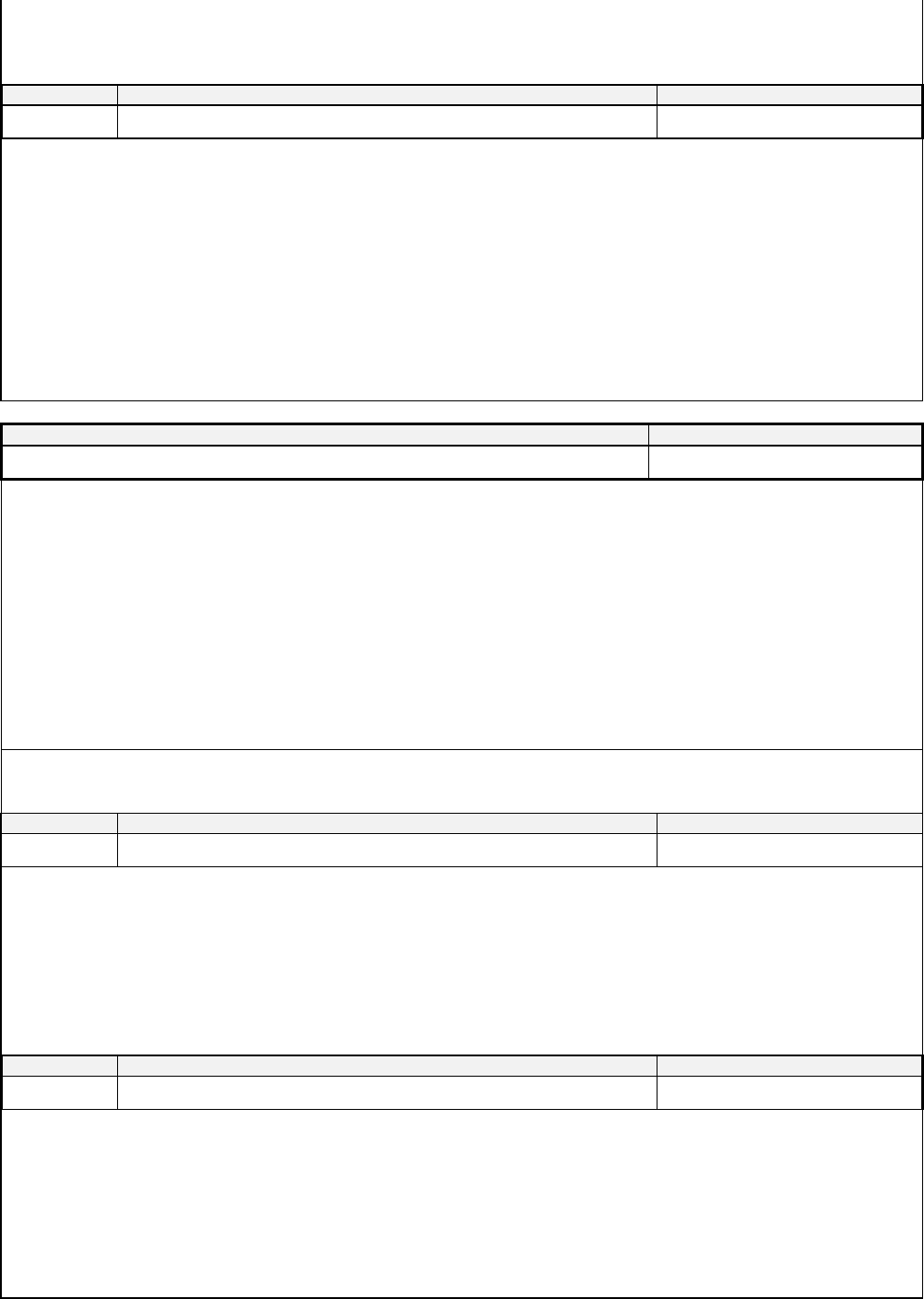
10 years of experience in Government related R&D, T&E, and systems acquisition programs.
Additional Guidelines:
7 years of relevant HSI engineering experience in at least 3 of the areas listed in Additional Requirements.
Level
eCraft Title
eCraft Code
V
ENGINEER, HUMAN SYSTEM INTEGRATION V
EHSI5
Typical Education:
MS Degree from recognized engineering curriculum. Examples include: ME / EE / IE / CSE. OR
MS Degree in physical science, engineering, or mathematics that includes 24 semester hours in physical science
and/or related engineering science such as mechanics, dynamics, properties of materials, and electronics.
Examples include: Applied Math, Applied Physics, Operational Research, Modeling and Simulation, Chemistry,
Biology, Computer Science, Naval Architecture.
Typical Experience:
12 years of experience in Government related R&D, T&E, and systems acquisition programs.
Additional Guidelines:
7 years of relevant HSI engineering experience in at least 4 of the areas listed in Additional Requirements.
Labor Category
SCA Category
ENGINEER, MECHANICAL
NO
GENERAL DUTIES OR EXPERIENCE:
Mechanical engineers research, develop, design, manufacture, and test tools, engines, machines, and other
mechanical devices. They work on power-producing machines such as electric generators, internal combustion
engines, and steam and gas turbines. They also develop power-using machines such as refrigeration and air-
conditioning equipment, machine tools, material handling systems, elevators and escalators, industrial
production equipment, and robots used in manufacturing.
Mechanical engineers also design tools that other engineers need for their work. Mechanical engineers rely on
computers to assist them in efficiently performing computations, and by permitting the modeling and simulation
of new designs as well as facilitating changes to existing designs. Computer-Aided Design (CAD) and
Computer-Aided Manufacturing (CAM) are used for design data processing and for turning the design into a
product.
ADDITIONAL REQUIREMENTS
None
Level
eCraft Title
eCraft Code
I
ENGINEER, MECHANICAL I
EM1
Typical Education:
Bachelor's level degree in Mechanical Engineering.
Typical Experience:
No required professional experience.
Additional Guidelines:
None
Level
eCraft Title
eCraft Code
II
ENGINEER, MECHANICAL II
EM2
Typical Education:
Bachelor's level degree in Mechanical Engineering.
Typical Experience:
3 years of professional experience.
Additional Guidelines:
None

Level
eCraft Title
eCraft Code
III
ENGINEER, MECHANICAL III
EM3
Typical Education:
Bachelor's level degree in Mechanical Engineering.
Typical Experience:
7 years of professional experience.
Additional Guidelines:
None
Level
eCraft Title
eCraft Code
IV
ENGINEER, MECHANICAL IV
EM4
Typical Education:
Master's level degree in Mechanical Engineering.
Typical Experience:
10 years of professional experience.
Additional Guidelines:
None
Labor Category
SCA Category
ENGINEER, STRUCTURAL
NO
GENERAL DUTIES OR EXPERIENCE:
Civil engineers design and supervise the construction of roads, buildings, airports, tunnels, dams, bridges, water
supply and sewage systems, and other construction projects. The major specialties within civil engineering are
structural, water resources, environmental, construction, transportation, and geotechnical engineering. Civil
engineers also work on architectural, engineering, and related services, involving developing designs for new
construction projects, while also constructing safer transportation systems, better water supply systems, and
pollution control systems.
ADDITIONAL REQUIREMENTS
None
Level
eCraft Title
eCraft Code
I
ENGINEER, STRUCTURAL I
EST1
Typical Education:
Bachelor's level degree in Applied Mechanics or Civil Engineering.
Typical Experience:
No required professional experience.
Additional Guidelines:
None
Level
eCraft Title
eCraft Code
II
ENGINEER, STRUCTURAL II
EST2
Typical Education:
Bachelor's level degree in Applied Mechanics or Civil Engineering.
Typical Experience:
3 years of professional experience.
Additional Guidelines:
None
Level
eCraft Title
eCraft Code

III
ENGINEER, STRUCTURAL III
EST3
Typical Education:
Bachelor's level degree in Applied Mechanics or Civil Engineering.
Typical Experience:
7 years of professional experience.
Additional Guidelines:
None
Level
eCraft Title
eCraft Code
IV
ENGINEER, STRUCTURAL IV
EST4
Typical Education:
Master's level degree in Applied Mechanics or Civil Engineering.
Typical Experience:
10 years of professional experience.
Additional Guidelines:
None
Labor Category
SCA Category
ENGINEER, SYSTEMS
NO
GENERAL DUTIES OR EXPERIENCE:
A Systems Engineer, also known as lead systems analyst, a network engineer who can also program, or a
software engineer who can also manage networks, is an IT professional who oversees the creation of hybrid
software, web and hardware products from initial specifications to final rollout and maintenance. These products
are often sophisticated systems that run on the web. The systems engineer is responsible to integrate various
network operating systems, application programs and hardware devices.
Duties of a systems engineer typically include managing the development cycle associated with producing a
resilient software, hardware and web application, including: specification, design, coding, testing and
maintenance.
Systems engineering is like putting together a puzzle, matching varied pieces together to make one cohesive
whole. Systems engineers are concerned with the "big picture" of a project in addition to technical aspects and
must consider details like cost, schedules and social issues that may be associated with a project.
ADDITIONAL REQUIREMENTS
None
Level
eCraft Title
eCraft Code
I
ENGINEER, SYSTEMS I
ESY1
Typical Education:
Bachelor's level degree in an Engineering discipline.
Typical Experience:
No required professional experience.
Additional Guidelines:
None
Level
eCraft Title
eCraft Code
II
ENGINEER, SYSTEMS II
ESY2
Typical Education:
Bachelor's level degree in an Engineering discipline.

Typical Experience:
3 years of professional experience in systems engineering.
Additional Guidelines:
None
Level
eCraft Title
eCraft Code
III
ENGINEER, SYSTEMS III
ESY3
Typical Education:
Bachelor's level degree in an Engineering discipline.
Typical Experience:
7 years of professional experience in systems engineering.
Additional Guidelines:
None
Level
eCraft Title
eCraft Code
IV
ENGINEER, SYSTEMS IV
ESY4
Typical Education:
Master's level degree in an Engineering discipline.
Typical Experience:
10 years of professional experience in systems engineering.
Additional Guidelines:
None
Labor Category
SCA Category
EVENT PLANNER
NO
GENERAL DUTIES OR EXPERIENCE:
An Event Planner coordinates gatherings of groups of people from small corporate events to large scale events.
Planners are responsible for administrative duties, organizing events, and interacting with customers and clients
on a personal level. Planners negotiate with vendors, communicate expectations, and execute well-organized
plans.
ADDITIONAL REQUIREMENTS
Public relations, marketing, and project management skills.
eCraft Title
eCraft Code
EVENT PLANNER
EP
Typical Education:
None.
Typical Experience:
Event Management or similar professional certification.
Additional Guidelines:
None
Labor Category
SCA Category
FIRE WARDEN
NO
GENERAL DUTIES OR EXPERIENCE:

Examines buildings and conducts research to determine compliance status with OSHA and NFPA standards and
recommends fire prevention techniques, as appropriate. Ensures fire compliance codes are being adhered to and
documents and tracks deficiencies until corrected. Educates workforce personnel by providing information on
fire prevention. Relies on experience and judgment to plan and accomplish goals. Performs a variety of
complicated tasks. Reports inspection results and trends as well as any significant compliance issues to the
Government Fire Warden.
ADDITIONAL REQUIREMENTS
None
eCraft Title
eCraft Code
FIRE WARDEN
FW
Typical Education:
Associate level degree.
Typical Experience:
2 years safety experience.
Additional Guidelines:
None
Labor Category
SCA Category
FITNESS MANAGER
NO
GENERAL DUTIES OR EXPERIENCE:
Fitness managers have experience in preventative exercise programs, particularly in a corporate or government
environment. They are also certified in CPR and First Aid by a recognized organization.
ADDITIONAL REQUIREMENTS
None
eCraft Title
eCraft Code
FITNESS MANAGER
FM
Typical Education:
Masters degree in Exercise Science or a related field.
Typical Experience:
2 years experience administering health, physical fitness, or recreation programs.
Additional Guidelines:
None
Labor Category
SCA Category
FULLY QUALIFIED NAVY VALIDATOR
NO
GENERAL DUTIES OR EXPERIENCE:
Extensive knowledge and experience with RDT&E and Business IT systems and the phases of Certification and
Accreditation (C&A) process. Experience in an IA or C&A related field. Satisfies provisions of CNSS no. 4016 (Risk
Analyst), Intermediate Level, but is not required to actually hold the certificate. Demonstrates in-depth knowledge of all
C&A subject areas with in-depth familiarity and understanding of Navy IT sites, systems and infrastructure; applies Navy
C&A guidance to Navy C&A efforts. Experience working with Navy C&A efforts as a Navy Validator. Strong writing
skills to develop and maintain System Security Plans (SSP), Contingency Plans, Privacy Impact Assessments,
Certification Reports, Accreditation Reports, Plan of Action & Milestones (POA&M), and other C&A documentation.
Demonstrates oral and written communication skills to work closely with all levels of personnel involved in IT operations
and technical aspects of systems.
This position is an IAM Level II in Cyber Security Workforce.
ADDITIONAL REQUIREMENTS

Must possess “Fully Qualified Validator Certificate” from the Navy Certification Authority (CA) at time of hire.
Level
eCraft Title
eCraft Code
I
FULLY QUALIFIED NAVY VALIDATOR I
FQNV1
Typical Education:
Bachelor’s degree in computer science.
Typical Experience:
No required professional experience.
Additional Guidelines:
IAM Level II
Level
eCraft Title
eCraft Code
II
FULLY QUALIFIED NAVY VALIDATOR II
FQNV2
Typical Education:
Bachelor’s degree in computer science.
Typical Experience:
3 years professional experience.
Additional Guidelines:
IAM Level II
Level
eCraft Title
eCraft Code
III
FULLY QUALIFIED NAVY VALIDATOR III
FQNV3
Typical Education:
Bachelor’s degree in computer science.
Typical Experience:
7 years professional experience.
Additional Guidelines:
IAM Level II
Level
eCraft Title
eCraft Code
IV
FULLY QUALIFIED NAVY VALIDATOR IV
FQNV4
Typical Education:
Bachelor’s degree in computer science.
Typical Experience:
10 years professional experience.
Additional Guidelines:
IAM Level II
Labor Category
SCA Category
HAZARDOUS WASTE/MATERIAL HANDLER
NO
GENERAL DUTIES OR EXPERIENCE:
Determine operational plans for abatement and remediation (e.g., removal, separation, stabilization,
neutralization) project execution. Collect hazardous waste (e.g., acids, caustics, paints, solvents, asbestos) for
transportation, collection, shipment, or storage. Respond to hazardous spills for containment and cleanup.
ADDITIONAL REQUIREMENTS
None

eCraft Title
eCraft Code
HAZARDOUS WASTE/MATERIAL HANDLER
HWH
Typical Education:
None
Typical Experience:
None.
Additional Guidelines:
Position requires successfully completing a pre-appointment physical examination.
Work requires frequent walking, kneeling, climbing, reaching, standing, pulling, pushing, stooping, bending, and
working in tiring and uncomfortable positions.
Must be able to work at a rapid pace for sustained periods of time and be able to lift and carry up to 100 pounds
unaided or by using material handling equipment.
Performs work inside in limited work space. Also, works outside under varying conditions including bad
weather and is required to move heavy loads under conditions of uncertain footing. Works off ladders and
scaffolds, carries heavy bags and/or objects up or down flights of stairs or on a horizontal plane. Must be able to
work in cramped and enclosed areas and work vigorously with full protective personal safety equipment on for
extended time periods. Working under these conditions may produce extreme perspiration and fatigue. Must
continually lift, move and otherwise handle up to 85 gallon drums. Exposed to possible cuts, bums, shock,
bruises, scrapes, a variety of toxic, flammable and corrosive vapors, liquids and solids, and other such injuries.
Work requires entering into and working inside confined spaces (i.e. fuel tanks, fuel cells, voids, enclosed
ceilings, crawl spaces and trenches). When working within the enclosure, performing remedial operations,
incumbent is subject to exposure to heat stress, carcinogenic elements, electrical hazards, chemical hazards and
severe dust conditions. Must be able to don and utilize respirators, face shields, self-contained breathing
apparatus and protective equipment to Level A protection for sustained periods of time.
Labor Category
SCA Category
INFORMATION SYSTEM SECURITY MANAGER (ISSM)
NO
GENERAL DUTIES OR EXPERIENCE:
Oversees and manages information security program implementation within the organization or other area of
responsibility. Manages strategy, personnel, infrastructure, policy enforcement, emergency planning, security awareness,
and/or other resources. Acquire and manage the necessary resources, including leadership support, financial resources,
and key security personnel, to support information technology (IT) security goals, and reduce overall organizational risk.
ADDITIONAL REQUIREMENTS
None
Level
eCraft Title
eCraft Code
I
INFORMATION SYSTEM SECURITY MANAGER I
ISSM1
Typical Education:
Associate Degree from accredited University or CNSSI 4011 Certificate or successful completion of military
training course: CIN J-3B-0440 (IP BASIC) (or DOD Service equivalent)
Typical Experience:
Validated 1-3 years specialized entry level experience in Specialty Area 72 (Information Systems Security
Management)
Additional Guidelines: A CompTIA Security + (CE) certification is required. A current USG issued “Secret” security clearance (or
interim) is required AND must be maintained. Personnel must be eligible to obtain and maintain a TS clearance.
As a member of Cybersecurity Workforce individual will need to maintain a minimum of 40 continuing education hours per year.
OJT Evaluation consist of: NAVEDTRA 43462-1C, or NAVEDTRA 43462-2, or NAVEDTRA 43469 watch station 304 or If IP O1-
3 or NAVEDTRA 43360-2 or If IP O4-5 or NAVEDTRA 43360-3 and must be completed in directed timelines
Level
eCraft Title
eCraft Code
II
INFORMATION SYSTEM SECURITY MANAGER II
ISSM2

Typical Education:
Bachelor Degree from accredited University or CNSSI 4012 certificate or ADQ GA7 or successful completion
of at least one of the following military training courses: NEC 2779 (CIN: A-531-0009) or 3372 or CIN W-3B-
1500 (EKMS Manager) or A-4C-1340 (KMI) (or DOD Service equivalent)
Typical Experience:
Validated 3-5 years specialized entry level experience in Specialty Area 72 (Information Systems Security
Management)
Additional Guidelines: A CompTIA Security + (CE) or CAP or CASP or Project Management Professional (PMP). A current
USG issued “SECRET” security clearance (or interim) is required AND must be maintained. Personnel must be eligible to obtain and
maintain a TS clearance.
As a member of Cybersecurity Workforce individual will need to maintain a minimum of 40 continuing education hours per year.
OJT Evaluation consist of: NAVEDTRA 43462-1C, or NAVEDTRA 43462-2, or NAVEDTRA 43469 watch station 304 or If IP
O1-3 or NAVEDTRA 43360-2 or If IP O4-5 or NAVEDTRA 43360-3 and must be completed in directed timelines
Level
eCraft Title
eCraft Code
III
INFORMATION SYSTEM SECURITY MANAGER III
ISSM3
Typical Education:
Graduate Degree from accredited University or CNSSI 4012 or NDU CISO certificate or NDU CIO certificate
or AQD GA8. or successful completion of military training course: NEC 2779 (CIN: A-531-0009) or 3372 or
(EKMS Manager CIN W-3B-1500 ) or A-4C-1340 (KMI) (or DOD Service equivalent)
Typical Experience:
Validated 5 plus years specialized Master level experience in Specialty Area 72 (Information Systems Security
Management)
Additional Guidelines: A GSLC or CISSP or CISM or CAP or or CASP is required. A current USG issued “SECRET” security
clearance (or interim) is required AND must be maintained. Personnel must be eligible to obtain and maintain a TS clearance.
As a member of Cybersecurity Workforce individual will need to maintain a minimum of 40 continuing education hours per year.
OJT Evaluation consists of: NAVEDTRA 43462-1C, or NAVEDTRA 43462-2, or NAVEDTRA 43469 watch station 304 or If IP
O1-3 or NAVEDTRA 43360-2 or If IP O4-5 or NAVEDTRA 43360-3 and must be completed in directed timelines
Labor Category
SCA Category
INTERMEDIATE LEVEL NAVY VALIDATOR
NO
GENERAL DUTIES OR EXPERIENCE:
Demonstrates ability to collect, organize, summarize and report on various data sets.
Demonstrates familiarity and understanding of all subject areas in Certification and Accreditation (C&A). Average to
above-average familiarity and understanding of Navy RDT&E and business systems, systems and infrastructures.
Applies Navy C&A guidance to Navy C&A efforts. Demonstrates experience in MS
Office products, Visio and scanning software/hardware. Knowledge of and experience with evaluating
hardware/software functional requirements. Demonstrates ability to develop documentation, prepare final
deliverable reports, and destruction of documents, as required. Demonstrates experience in strong written and oral
communication skills.
The Intermediate Level Navy Validator works under the supervision of a Fully Qualified Navy Validator.
The Intermediate Level Navy Validator has an excellent understanding of the C&A process, but needs additional
experience or certifications to meet the Fully Qualified Level.
This position is an IAM Level I in Cyber Security Workforce.
ADDITIONAL REQUIREMENTS
Must possess “Intermediate Level Navy Validator Certificate” from the Navy Certification Authority (CA) at time of
hire.
Level
eCraft Title
eCraft Code

I
INTERMEDIATE LEVEL NAVY VALIDATOR I
ILNV1
Typical Education:
Associates degree in computer science
Typical Experience:
No required professional experience.
Additional Guidelines:
IAM Level I
Level
eCraft Title
eCraft Code
II
INTERMEDIATE LEVEL NAVY VALIDATOR II
ILNV2
Typical Education:
Associates degree in computer science
Typical Experience:
3 years professional experience.
Additional Guidelines:
IAM Level I
Level
eCraft Title
eCraft Code
III
INTERMEDIATE LEVEL NAVY VALIDATOR III
ILNV3
Typical Education:
Associates degree in computer science
Typical Experience:
7 years professional experience.
Additional Guidelines:
IAM Level I
Level
eCraft Title
eCraft Code
IV
INTERMEDIATE LEVEL NAVY VALIDATOR IV
ILNV4
Typical Education:
Associates degree in computer science or Bachelor’s degree in computer science.
Typical Experience:
10 years professional experience.
Additional Guidelines:
IAM Level I
Labor Category
SCA Category
LOGISTICIAN
NO
GENERAL DUTIES OR EXPERIENCE:
Logisticians integrate the spectrum of the logistics processes within the operational, acquisition and wholesale
environments. Logisticians are responsible for directing the integrated logistics process, developing support
policies, procedures and systems, and providing implementation guidance. The Logistician prepares and
implements directives to ensure effective logistics support, and establishes and enforces standards to ensure that
the assigned work force is properly trained and equipped. It is the Logistician's duty to develop, initiate,
integrate and manage all logistics actions associated with life cycle management of weapon systems, subsystems
and equipment.
ADDITIONAL REQUIREMENTS

None
Level
eCraft Title
eCraft Code
I
LOGISTICIAN I
LGT1
Typical Education:
High school/vocational school degree or GED certificate.
Typical Experience:
3 years professional experience in integrated logistics support.
Additional Guidelines:
None
Level
eCraft Title
eCraft Code
II
LOGISTICIAN II
LGT2
Typical Education:
High school/vocational school degree or GED certificate.
Typical Experience:
7 years professional experience in integrated logistics support.
Additional Guidelines:
None
Level
eCraft Title
eCraft Code
III
LOGISTICIAN III
LGT3
Typical Education:
High school/vocational school degree or GED certificate.
Typical Experience:
15 years professional experience in integrated logistics support.
Additional Guidelines:
None
Labor Category
SCA Category
MANAGER, ADMINISTRATIVE
NO
GENERAL DUTIES OR EXPERIENCE:
Administrative managers coordinate and support services to organizations. These workers manage the services
that allow organizations to operate efficiently, such as secretarial and reception, administration, payroll,
conference planning and travel, information and data processing, mail, materials scheduling and distribution,
printing and reproduction, records management, telecommunications management, security, parking, and
personal property procurement, supply, and disposal. They also implement procedures to improve productivity
and customer service. In addition, some administrative services managers acquire, distribute, and store supplies,
while others dispose of surplus property or oversee the disposal of unclaimed property. They are responsible for
coordinating the physical workplace with the people and work of an organization.
ADDITIONAL REQUIREMENTS
None
Level
eCraft Title
eCraft Code
I
MANAGER, ADMINISTRATIVE I
MANA1
Typical Education:
Associate degree in any field.
Typical Experience:
2 years general experience in the field of management or operations of an enterprise.

Additional Guidelines:
None
Level
eCraft Title
eCraft Code
II
MANAGER, ADMINISTRATIVE II
MANA2
Typical Education:
Bachelor's level degree in Accounting, Finance, Economics or Business Administration.
Typical Experience:
3 years of professional experience.
Additional Guidelines:
None
Level
eCraft Title
eCraft Code
III
MANAGER, ADMINISTRATIVE III
MANA3
Typical Education:
Bachelor's level degree in Accounting, Finance, Economics or Business Administration.
Typical Experience:
7 years of professional experience.
Additional Guidelines:
None
Level
eCraft Title
eCraft Code
IV
MANAGER, ADMINISTRATIVE IV
MANA4
Typical Education:
Master's level degree in Accounting, Finance, Economics or Business Administration.
Typical Experience:
10 years of professional experience.
Additional Guidelines:
None
Labor Category
SCA Category
MANAGER, OPERATIONS
NO
GENERAL DUTIES OR EXPERIENCE:
Operations Managers are responsible for the management and coordination of branch, plant, or department
operation strategies and activities and may assist with the review, development, and implementation of
organizational policies, practices, procedures, and attainment of operating goals.
Operations Managers review, analyze, and prepare reports, records, and directives, and confer with
managers/supervisors to obtain data required for planning activities. They assign or delegate responsibility for
specified work or functional activities and disseminate policies and objectives to supervisors/staff. Operations
Managers may organize resources to ensure effective production of goods and/or services, give work direction,
resolve problems, prepare schedules, and set deadlines to ensure timely completion of work.
Operations Managers ensure adequate training of staff and employee compliance to organization's policies and
practices, and coordinate activities of the department with related activities of other departments to ensure
efficiency and economy. Operations Managers monitor and analyze costs and prepare department budgets.
ADDITIONAL REQUIREMENTS
None
Level
eCraft Title
eCraft Code

I
MANAGER, OPERATIONS I
MANO1
Typical Education:
Bachelor's level degree.
Typical Experience:
No required professional experience.
Additional Guidelines:
None
Level
eCraft Title
eCraft Code
II
MANAGER, OPERATIONS II
MANO2
Typical Education:
Bachelor’s level degree.
Typical Experience:
3 years professional experience in operations management.
Additional Guidelines:
None
Level
eCraft Title
eCraft Code
III
MANAGER, OPERATIONS III
MANO3
Typical Education:
Bachelor’s level degree.
Typical Experience:
7 years professional experience in operations management.
Additional Guidelines:
None
Level
eCraft Title
eCraft Code
IV
MANAGER, OPERATIONS IV
MANO4
Typical Education:
Master’s level degree.
Typical Experience:
10 years professional experience in operations management.
Additional Guidelines:
None
Labor Category
SCA Category
MANAGER, PROGRAM/PROJECT
NO
GENERAL DUTIES OR EXPERIENCE:
Program Managers are concerned with the overall planning, direction and success of major programs, systems
development efforts, and research or technology initiatives which have great significance to the activity’s and
agency’s needs. Programs are typically large, multi-year efforts divided into several sub-programs/tasks.
Program Managers are also responsible for the overall program definition, organization, and direction of short
and long range plans. This includes the responsibility for formulating, guiding, and directing the technical
approach; and defining and negotiation with activity and agency personnel for necessary resources.
Establishment and control of technical milestones, schedules, budgets and costs are also essential tasks for the
Program Manager.
ADDITIONAL REQUIREMENTS

None
Level
eCraft Title
eCraft Code
I
MANAGER, PROGRAM/PROJECT I
MANP1
Typical Education:
Bachelor's level degree in any technical or managerial discipline.
Typical Experience:
5 years professional experience in program/project management.
Additional Guidelines:
None
Level
eCraft Title
eCraft Code
II
MANAGER, PROGRAM/PROJECT II
MANP2
Typical Education:
Bachelor's level degree in any technical or managerial discipline.
Typical Experience:
10 years professional experience in program/project management.
Additional Guidelines:
None
Level
eCraft Title
eCraft Code
III
MANAGER, PROGRAM/PROJECT III
MANP3
Typical Education:
Bachelor's level degree in any technical or managerial discipline.
Typical Experience:
15 years professional experience in program/project management.
Additional Guidelines:
None
Labor Category
SCA Category
MARINE SURVEYOR
NO
GENERAL DUTIES OR EXPERIENCE:
A marine surveyor conducts inspections, surveys or examinations of marine vessels to assess, monitor and report
on their condition and the products on them, as well as inspects damage caused to both vessels and cargo.
Marine surveyors also inspect equipment intended for new or existing vessels to ensure compliance with various
standards or specifications. Marine surveys typically include the structure, deck machinery and propulsion
machinery, equipment and systems, including piping, electrical, communications, navigational, safety, etc. and
general operational condition of a vessel and/or cargo.
A marine surveyor may also survey cargo, machinery, docks, wharfs, marinas, and handling equipment related to
the marine industry.
ADDITIONAL REQUIREMENTS
Accreditation by the Society of Accredited of Marine Surveyors or the National Association of Marine
Surveyors (SAMS) or National Association of Marine Surveyors (NAMS),
eCraft Title
eCraft Code
MARINE SURVEYOR
MRS
Typical Education:

High School Diploma
Typical Experience:
1 Year of Experience minimum
Additional Guidelines:
Accreditation by the Society of Accredited of Marine Surveyors or the National Association of Marine
Surveyors (SAMS) or National Association of Marine Surveyors (NAMS),
Labor Category
SCA Category
MATHEMATICIAN
NO
GENERAL DUTIES OR EXPERIENCE:
Mathematicians use mathematical theory, computational techniques, algorithms, and the latest computer
technology to solve economic, scientific, engineering, physics, and business problems. The work of
mathematicians falls into two broad classes — theoretical (pure) mathematics and applied mathematics.
Theoretical mathematicians advance mathematical knowledge by developing new principles and recognizing
previously unknown relationships between existing principles of mathematics.
Applied mathematicians use theories and techniques, such as mathematical modeling and computational
methods, to formulate and solve practical problems in business, government, and engineering, and in the
physical, life, and social sciences by starting with a practical problem, envisioning the separate elements of the
process under consideration, and then reducing the elements to mathematical variables. Applied mathematicians
also use computers to analyze relationships among the variables and solve complex problems by developing
models with alternative solutions.
Certain mathematicians, called cryptanalysts, analyze and decipher encryption systems designed to transmit
military, political, financial, or law enforcement-related information in code.
ADDITIONAL REQUIREMENTS
None
Level
eCraft Title
eCraft Code
I
MATHEMATICIAN I
MATH1
Typical Education:
Bachelor's level degree in Mathematics.
Typical Experience:
3 years professional experience.
Additional Guidelines:
None
Level
eCraft Title
eCraft Code
II
MATHEMATICIAN II
MATH2
Typical Education:
Master's level degree in Mathematics.
Typical Experience:
7 years professional experience.
Additional Guidelines:
None
Level
eCraft Title
eCraft Code
III
MATHEMATICIAN III
MATH3
Typical Education:
Ph.D. degree in Mathematics.
Typical Experience:

10 years professional experience.
Additional Guidelines:
None
Labor Category
SCA Category
NAVAL ARCHITECT
NO
GENERAL DUTIES OR EXPERIENCE:
A naval architect designs, builds and maintains boats and ships. These vessels can range widely in size from
small combatant craft to large aircraft carriers. Naval architects are also responsible for designing submarines
that range in size from small unmanned undersea vehicles to large ballistic missile carrying submarines.
The follow are the primary phases of a ship design that naval architects are required to be proficient in:
hydrostatics, hydrodynamics, flotation and stability, structures, arrangements, and construction. For U.S. Navy
ship designs naval architects are required to be proficient with conducting cost and survivability assessments.
Naval architects need to be proficient with modern computation tools to perform ship and submarine design
studies. Due to the complexity of modern naval ships and craft, naval architects are required to integrate the
activities of a variety of technology specialists
Naval architects are required to synthesize the often conflicting demands from competing design constraints to
determine the most balanced designs for a ship or submarine.
ADDITIONAL REQUIREMENTS
None.
eCraft Title
eCraft Code
NAVAL ARCHITECT
NAR
Typical Education:
4 or 5 year college bachelor’s degree in Naval Architecture or Ocean Engineering.
Typical Experience:
1 Year of Experience
Additional Guidelines:
None
Labor Category
SCA Category
OPERATIONS SUPPORT
NO
GENERAL DUTIES OR EXPERIENCE:
Operations Support provides daily analytical and program management support to senior level executives.
Operations Support is responsible for overseeing event preparation and correspondence support for key industry
events, supporting change/transformation efforts (i.e., Gap analysis, stakeholder interviews, situational reports,
etc) for large programs, and coordinating responses to technical specification and guidance documents related to
credentialing and identity management.
Operations Support provides statistical (descriptive) analysis as required and ad hoc reporting to senior officials
as required. They lead small and medium sized projects as required.
ADDITIONAL REQUIREMENTS
None
Level
eCraft Title
eCraft Code

I
OPERATIONS SUPPORT I
OS1
Typical Education:
Bachelor's level degree.
Typical Experience:
No required professional experience.
Additional Guidelines:
None
Level
eCraft Title
eCraft Code
II
OPERATIONS SUPPORT II
OS2
Typical Education:
Bachelor’s level degree.
Typical Experience:
3 years professional experience in operations support.
Additional Guidelines:
None
Level
eCraft Title
eCraft Code
III
OPERATIONS SUPPORT III
OS3
Typical Education:
Bachelor’s level degree.
Typical Experience:
7 years professional experience in operations support.
Additional Guidelines:
None
Level
eCraft Title
eCraft Code
IV
OPERATIONS SUPPORT IV
OS4
Typical Education:
Bachelor’s level degree.
Typical Experience:
10 years professional experience in operations support.
Additional Guidelines:
None
Labor Category
SCA Category
QUALITY ASSURANCE OVERSIGHT REPRESENTATIVE
NO
GENERAL DUTIES OR EXPERIENCE:
Operation, maintenance, testing and repair of HM&E equipment installed on U.S. Navy submarines, and
providing Quality Assurance support for submarine equipment maintenance and repairs at a Navy shipyard.
ADDITIONAL REQUIREMENTS
None
Level
eCraft Title
eCraft Code
I
QA OVERSIGHT REPRESENTATIVE I
QAOR1
Typical Education:

High school diploma or GED and a graduate of military schools which provided an in-depth
knowledge of naval shipboard systems maintenance and operation; or be a graduate of a trade,
industrial or correspondence school for engineering.
Typical Experience:
10 years of experience in the operation, maintenance, testing and repair of HM&E equipment installed on U.S.
Navy submarines, and experience providing QA support for submarine equipment maintenance and repairs at
a Navy shipyard.
Additional Guidelines:
None
Level
eCraft Title
eCraft Code
II
QA OVERSIGHT REPRESENTATIVE II
QAOR2
Typical Education:
High school diploma or GED and a graduate of military schools which provided an in-depth
knowledge of naval shipboard systems maintenance and operation; or be a graduate of a trade,
industrial or correspondence school for engineering.
Typical Experience:
10 years supervising submarine maintenance and repair activities at a U.S. Navy public shipyard,
thorough knowledge of the Joint Fleet Maintenance Manual (JFMM) and the Submarine Material Certification
Requirements Manual for Submarine Safety Program, and proficiency in the use of the Advance Industrial
Management (AIM) and Project Sequence and Scheduling (PSS) applications to manage shipyard work and
meet schedule deadlines.
Additional Guidelines:
None
Labor Category
SCA Category
SCIENTIST
NO
GENERAL DUTIES OR EXPERIENCE:
There are two main types of scientists. The Life Scientist category includes Agricultural and Food scientists,
Biological scientists, Medical scientists, and Conservation scientists. The second category of scientists is called
the Physical Scientist. Typical areas of study, in the field of physical science, include the study of the
atmosphere, chemistry, environmental science, and physics.
Physical scientists often work as Chemists and Materials scientists, searching for new knowledge about
chemicals. Materials scientists research the structures and chemical properties of various materials to develop
new products or enhance existing ones. They also determine ways to strengthen or combine materials or develop
new materials for use in a variety of products. Chemists also work in production and quality control in chemical
manufacturing plants. They prepare instructions for plant workers that specify ingredients, mixing times, and
temperatures for each stage in the process.
The life sciences deal with the environment. Life scientists forecast the weather, study information on air
pressure, temperature, humidity, and wind velocity, protect the environment; locate water, mineral, and energy
resources; predict future geologic hazards, conduct research to eliminate sources of pollutants that affect people,
wildlife, and their environments. These workers analyze and report measurements and observations of air, water,
soil, and other sources and make recommendations on how best to clean and preserve the environment.
ADDITIONAL REQUIREMENTS
None
Level
eCraft Title
eCraft Code
I
SCIENTIST I
S1
Typical Education:

BS degree in a science field.
Typical Experience:
3 years of professional experience in Life or Physical science.
Additional Guidelines:
None
Level
eCraft Title
eCraft Code
II
SCIENTIST II
S2
Typical Education:
MS Degree in a science field.
Typical Experience:
7 years professional experience in Life or Physical science.
Additional Guidelines:
None
Level
eCraft Title
eCraft Code
III
SCIENTIST III
S3
Typical Education:
Ph.D. in a science field.
Typical Experience:
10 years professional experience in Life or Physical science.
Additional Guidelines:
None
Labor Category
SCA Category
SECURITY PROGRAM MANAGER
NO
GENERAL DUTIES OR EXPERIENCE:
Oversees and manages information security program implementation within the organization or other area of
responsibility. Manages strategy, personnel, infrastructure, policy enforcement, emergency planning, security awareness,
and/or other resources.
ADDITIONAL REQUIREMENTS
None
Level
eCraft Title
eCraft Code
I
SECURITY PROGRAM MANAGER I
SPM1
Typical Education:
Associate Degree from accredited University or CNSSI 4011 Certificate or AQD GA7
Typical Experience:
Validated 1-3 years specialized entry level experience in Specialty Area 74 (Security Program Management)
Additional Guidelines: An A+ (CE) or Network + (CE) or SSCP certification is required. A current USG issued “Secret” security
clearance (or interim) is required AND must be maintained. Personnel must be eligible to obtain and maintain a TS clearance.
As a member of Cybersecurity Workforce individual will need to maintain a minimum of 40 continuing education hours per year.
OJT Evaluation: if authorized privileged access- NAVEDTRA 43469 watch station 301 or W/O privileged access- NAVEDTRA
43469 watch station 304
Level
eCraft Title
eCraft Code
II
SECURITY PROGRAM MANAGEMENT II
SPM2

Typical Education:
Bachelor Degree from accredited University or CNSSI 4012 or 4013 or 4014 or 4015 or 4016 Certificate or
NDU CISO certificate AQD GA7 or successful completion of at least one of the following military training
course: NEC 2780 (CIN: A-531-0022) (or DOD Service equivalent)
Typical Experience:
Validated 3-5 years specialized entry level experience in Specialty Area 74 (Security Program Management)
Additional Guidelines: A CCNA or CAP or Security + (CE) or Program Management Professional (PgMP) is required. A current
USG issued “SECRET” security clearance (or interim) is required AND must be maintained. Personnel must be eligible to obtain and
maintain a TS clearance.
As a member of Cybersecurity Workforce individual will need to maintain a minimum of 40 continuing education hours per year.
OJT Evaluation: consists of With privileged access- NAVEDTRA 43469 watch station 302 or W/O privileged access-
NAVEDTRA 43469 watch station 304 and must be completed in directed timelines
Level
eCraft Title
eCraft Code
III
SECURITY PROGRAM MANAGEMENT III
SPM3
Typical Education:
Graduate Degree from accredited University or CNSSI 4012 or 4013 or 4014 or 4015 or 4016 Certificate or
NDU CIO certificate AQD GA8 or successful completion of military training course: NEC 2779 (CIN: A-531-
0009) (or DOD Service equivalent)
Typical Experience:
Validated 5 plus years specialized Master level experience in Specialty Area 74 (Security Program Management)
Additional Guidelines: A CISSP or CISM or GSLC or CASP or CCISO or Program Management Professional (PgMP) is required.
A current USG issued “SECRET” security clearance (or interim) is required AND must be maintained. Personnel must be eligible to
obtain and maintain a TS clearance.
As a member of Cybersecurity Workforce individual will need to maintain a minimum of 40 continuing education hours per year.
OJT Evaluation consists of: With privileged access- NAVEDTRA 43469 watch station 303 or W/O privileged access- NAVEDTRA
43469 watch station 304 and must be completed in directed timelines
Labor Category
SCA Category
SHIP COST ESTIMATOR
NO
GENERAL DUTIES OR EXPERIENCE:
A ship cost estimator provides cost related analysis and assessments of ships, submarines, and related ship
systems. A ship cost estimator also provides technical expertise, performs parametric tradeoff studies, and
assesses cost estimates.
A ship cost estimator is proficient with using modern computational tools and spreadsheets to conduct cost
assessments. Typical tools include the USN’s Visibility and Management of Operating Costs (VAMOSC)
databases and Operating and Support Cost Analysis Model (OSCAM) suite of cost models for a variety of
Operations and Support (O&M) costing tasks.
A ship cost estimator develops program life cycle cost estimates, and performs concepts and technology tradeoff
studies for surface ship and submarine programs.
ADDITIONAL REQUIREMENTS
Bachelor’s Degree in Financial, Math, Economics, Engineering, or Naval Architecture
eCraft Title
eCraft Code
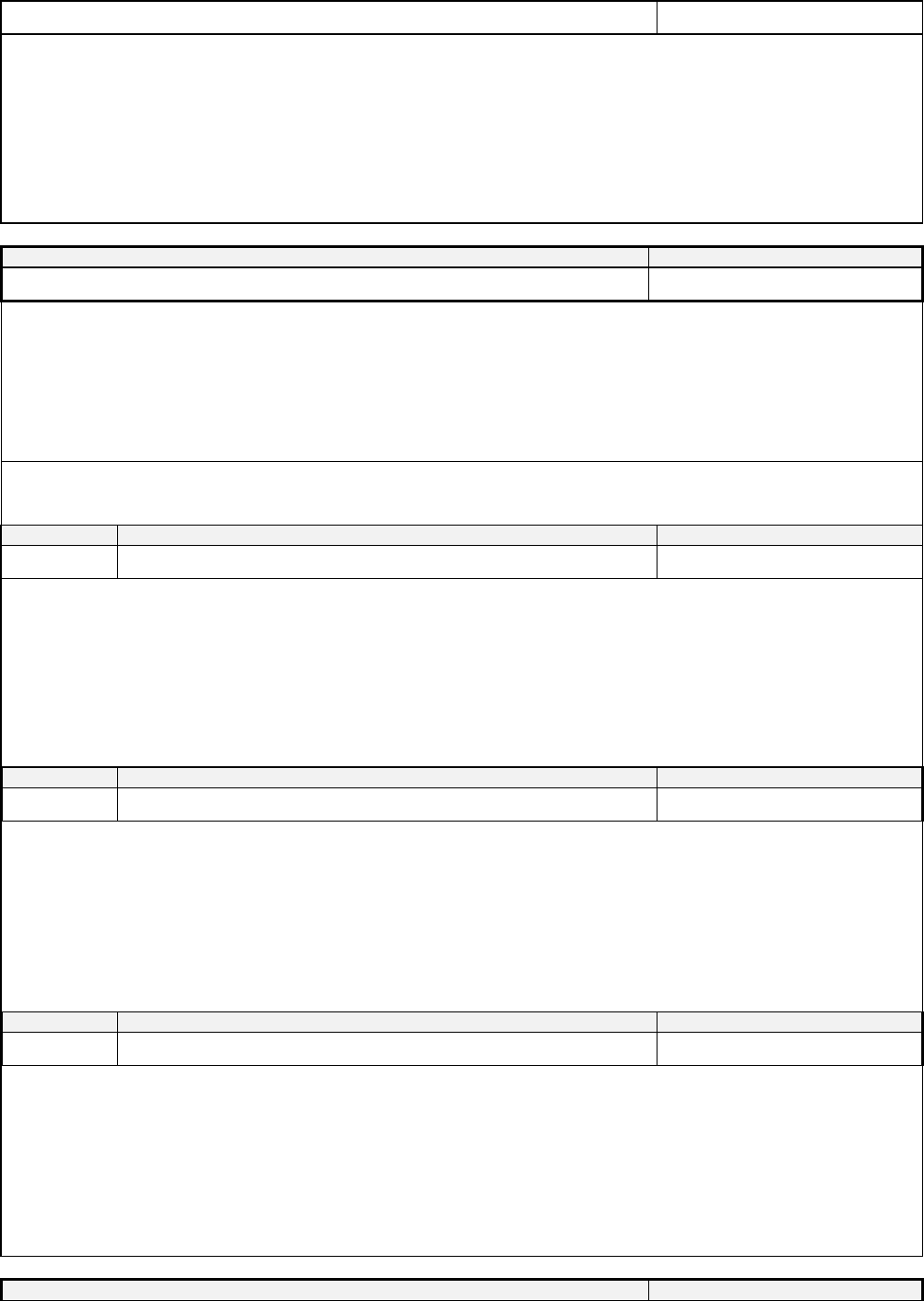
SHIP COST ESTIMATOR
SCE
Typical Education:
Bachelor’s Degree in Financial, Math, Economics, Engineering, or Naval Architecture
Typical Experience:
1 Year of Experience minimum
Additional Guidelines:
None
Labor Category
SCA Category
SPECIALIST, CONFIGURATION MGMT
NO
GENERAL DUTIES OR EXPERIENCE:
The Configuration Management Specialist shall be responsible for configuration management issues associated
with maintaining and controlling all hardware inventory, documentation, product releases, and software
configuration management. Individual shall also work closely with the Configuration Control Board in defining
and implementing procedures for releasing new products throughout the entire life cycle. Individual shall
provide change management and product configuration management guidance.
ADDITIONAL REQUIREMENTS
None
Level
eCraft Title
eCraft Code
I
SPECIALIST, CONFIGURATION MGMT I
SCM1
Typical Education:
Bachelor's level degree in any field.
Typical Experience:
3 years of professional experience in configuration management.
Additional Guidelines:
None
Level
eCraft Title
eCraft Code
II
SPECIALIST, CONFIGURATION MGMT II
SCM2
Typical Education:
Bachelor's level degree in any field.
Typical Experience:
7 years of professional experience in configuration management.
Additional Guidelines:
None
Level
eCraft Title
eCraft Code
III
SPECIALIST, CONFIGURATION MGMT III
SCM3
Typical Education:
Bachelor's level degree in any field.
Typical Experience:
10 years professional experience in configuration management.
Additional Guidelines:
None
Labor Category
SCA Category

SPECIALIST, CORROSION CONTROL
NO
GENERAL DUTIES OR EXPERIENCE:
Corrosion Control Technicians provide technical expertise and training to ships’ force personnel in all aspects of
corrosion control. Corrosion Control Technicians have extensive knowledge of surface preparation tools, corrosion
control techniques and coating systems used on U.S. Navy ships and in the marine industry. Corrosion Control
Technicians are familiar with new corrosion control technologies and how these technologies can be implemented
onboard U.S. Navy ships. Corrosion Control Technicians train ships’ force personnel in the proper use of tools and the
critical benefit of performing quality preservation maintenance.
ADDITIONAL REQUIREMENTS
National Association of Corrosion Engineers (NACE) Certified Coating Inspector Program (CIP) certifications
Level
eCraft Title
eCraft Code
I
SPECIALIST, CORROSION CONTROL I
SCC1
Typical Education:
High School Diploma, related military experience, trade/industrial school graduate or GED equivalent.
Certification: NACE Certified Coating Inspector Program (CIP) Level I.
Typical Experience:
Seven (7) years of experience that is related to electronics and combat systems corrosion control maintenance on U.S.
Navy ships/submarines and/or U.S. Coast Guard boats.
Additional Guidelines:
Corrosion Control C5I specialists use Electromagnetic Environmental Effects including Electromagnetic Compatibility
(EMC) and Electromagnetic Interference (EMI) and methods to mitigate problems including but not limited to proper
bonding straps, weather sealing and fastener selection. Corrosion Control C5I specialists have extensive knowledge of
the processes and technical requirements as they pertain to shipboard organizational level corrosion control of C5I
systems.
Level
eCraft Title
eCraft Code
II
SPECIALIST, CORROSION CONTROL II
SCC2
Typical Education:
High School Diploma, related military experience, trade/industrial school graduate or GED equivalent.
Certification: NACE Certified Coating Inspector Program (CIP) Level III with peer review.
Typical Experience:
Seven (7) years of experience in the corrosion control field supporting U.S. Navy ship/submarine maintenance and/or
U.S. Coast Guard boat maintenance.
Additional Guidelines:
Senior Corrosion Control Specialists are required to have an extensive knowledge and understanding of corrosion
control issues, solutions, and technical requirements for shipboard Hull, Mechanical and Electrical (HM&E) systems,
equipment and ship’s structure. Senior Specialists have significant experience working with and understanding
constraints associated with shipboard organizational level (O-Level) corrosion control maintenance for HM&E systems
and equipment.
Level
eCraft Title
eCraft Code
III
SPECIALIST, CORROSION CONTROL III
SCC3

Typical Education:
High School Diploma, related military experience, trade/industrial school
graduate or GED equivalent.
Certification: NACE Certified Coating Inspector Program (CIP) Level III with peer review
Typical Experience:
Ten (10) years of experience in the corrosion control field supporting U.S.Navy ship and submarine maintenance.
Experience with corrosion control issues, solutions, and technical requirements for Hull, Mechanical and Electrical
(HM&E) and (Combat Systems, Communications, Computers, Command and Control and Internet (C5I)) C5I systems
and equipment.
Additional Guidelines:
Corrosion Control Specialist III (team lead) duties include the ability and experience to assist Ships’ Force personnel in
developing a plan for shipboard preservation projects, the ability to effectively supervise other team members, manage
corrosion control projects, and the ability to communicate effectively with US Navy ship leadership, ship personnel and
other team members.
Labor Category
SCA Category
SPECIALIST, EMERGENCY MANAGEMENT
NO
GENERAL DUTIES OR EXPERIENCE:
Emergency Management Specialists coordinate emergency preparedness response plans with external entities
(e.g., host nation, military, state and local government, emergency responders) to integrate emergency
management functions, perform emergency management functions (e.g., planning exercises, managing
procedural matters, response activities) to support the operation of an emergency management program, and
oversee the maintenance of emergency response equipment both inside and outside an Emergency Operations
Center to ensure equipment is readily available to respond to a radiological incident. Additionally, they may
develop training curriculum for emergency planning, preparedness, mitigation, response, or recovery operations.
ADDITIONAL REQUIREMENTS
May require travel and/or collaboration with on and off-base units and agencies on EM programs, policies, and
procedures. Serves as the emergency management liaison with outside agencies at the local, county, and tribal
level during emergencies.
eCraft Title
eCraft Code
SPECIALIST, EMERGENCY MANAGEMENT
SEM
Typical Education:
Bachelor’s or Master’s level degree.
Typical Experience:
Specialized experience must demonstrate the following: 1) Utilizing and training personnel on the use of
emergency operation center and command and control equipment and software; 2) Assisting with the planning
of an Emergency Management exercise of various types and scope (e.g., table-top, functional and full scale
exercises); and 3) Coordinating response and recovery operations with internal and external agencies. Or
specialists should have successfully completed a master’s or equivalent graduate degree or combination of
graduate education and experience that is related to the position being filled.
Additional Guidelines:
None
Labor Category
SCA Category
SPECIALIST, INFORMATION ASSURANCE COMPLIANCE
NO
GENERAL DUTIES OR EXPERIENCE:
Oversees, evaluates, and supports the documentation, validation, and accreditation processes necessary to ensure new
and existing information technology (IT) systems meet the organization’s information assurance (IA) and security
requirements. Ensures appropriate treatment of risk, compliance, and monitoring assurance from internal and external
perspectives.

ADDITIONAL REQUIREMENTS
None
Level
eCraft Title
eCraft Code
I
SPECIALIST, IA COMPLIANCE I
SIAC1
Typical Education:
Associate Degree from accredited University or CNSSI 4011 Certificate or successful completion of military
training course: NEC 2791 (A-150-1980 or K-150-2115) or IP BASIC (CIN: J-3B-0440) (or DOD Service
equivalent)
Typical Experience:
Validated 1-3 years specialized entry level experience in Specialty Area 61 (Information Assurance Compliance)
Additional Guidelines: An A+ (CE) or Network + (CE) or SSCP certification is required. A current USG issued
“Secret” security clearance (or interim) is required AND must be maintained. Personnel must be eligible to obtain and
maintain a TS clearance.
As a member of Cybersecurity Workforce individual will need to maintain a minimum of 40 continuing education
hours per year.
OJT Evaluation consist of: With privileged access- NAVEDTRA 43469 watch station 301 or W/O privileged access-
NAVEDTRA 43469 watch station 304 and must be completed in directed timelines
Level
eCraft Title
eCraft Code
II
SPECIALIST, IA COMPLIANCE II
SIAC2
Typical Education:
Bachelor Degree from accredited University or CNSSI 4012 or 4013 or 4014 or 4015 or 4016 Certificate or
NDU CISO certificate or successful completion of at least one of the following military training courses: NEC
2780 (CIN: A-531-0022) or 2779 (CIN: A-531-0009) or 2781 (CIN: A-531-0045) (or DOD Service equivalent)
Typical Experience:
Validated 3-5 years specialized entry level experience in Specialty Area 61 (Information Assurance Compliance)
Additional Guidelines: A CCNA or CAP or Security + (CE) or ENSA is required. A current USG issued “SECRET” security
clearance (or interim) is required AND must be maintained. Personnel must be eligible to obtain and maintain a TS clearance.
As a member of Cybersecurity Workforce individual will need to maintain a minimum of 40 continuing education hours per year.
OJT Evaluation consist of: With privileged access- NAVEDTRA 43469 watch station 302 or W/O privileged access- NAVEDTRA
43469 watch station 304 and must be completed in directed timelines
Level
eCraft Title
eCraft Code
III
SPECIALIST, IA COMPLIANCE III
SIAC3
Typical Education:
Graduate Degree from accredited University or CNSSI 4012 or 4013 or 4014 or 4015 or 4016 Certificate or
NDU CIO certificate or successful completion of military training course: NEC 2779 (CIN: A-531-0009) (or
DOD Service equivalent)
Typical Experience:
Validated 5 plus years specialized Master level experience in Specialty Area 61 (Information Assurance
Compliance)
Additional Guidelines: A CISSP or CISM or GSLC or CASP is required. A current USG issued “SECRET” security clearance (or
interim) is required AND must be maintained. Personnel must be eligible to obtain and maintain a TS clearance.
As a member of Cybersecurity Workforce individual will need to maintain a minimum of 40 continuing education hours per year.
OJT Evaluation consists of: With privileged access- NAVEDTRA 43469 watch station 303 or W/O privileged access-
NAVEDTRA 43469 watch station 3043 and must be completed in directed timelines
An operating system credential may be directed in accordance with an Privileged Access Agreement

Labor Category
SCA Category
SPECIALIST, INFORMATION SYSTEM SECURITY
NO
GENERAL DUTIES OR EXPERIENCE:
The Information System Security Specialist is responsible for supporting all aspects of a Program Information
Assurance (IA) processes tailored to include minimum qualification standards, fundamental awareness and
familiarity to demonstrated competency with specific experience in Cyber Security, Engineering, Test &
Evaluation, (T&E) and/or Security Control Assessor (SCA) under a Certification & Accreditation (C&A) and/or
Assessment & Authorization (A&A) process. The specialist should demonstrate a working knowledge of the
Risk Management Framework (RMF) process and/or include prior experience with the Defense Information
Assurance & Certification Accreditation Process (DIACAP). Familiarity with security policies & guidance
documents to assist with the preparation and maintenance of process artifacts, traceability documents purposed
for compliance with Authority to Operate (ATO) requirements. The specialist is expected to evaluate security
solutions to ensure they meet security requirements for processing up to classified information, and supervise
and/or maintain the operational security posture for an information system or program.
More senior specialists may assist or develop system security policy and ensure compliance of change
management and configuration control processes. Plan and coordinate the IT security program and policies
supporting the command leadership mission and goals.
ADDITIONAL REQUIREMENTS
None
Level
eCraft Title
eCraft Code
I
SPECIALIST, INFORMATION SYSTEM SECURITY I
SISS1
Typical Education:
High school diploma or HS equivalency certificate is acceptable with additional years of experience as defined
in the next category).
Typical Experience:
2 Years minimum practical experience in a Cybersecurity, Engineering, T&E or A&A (formerly C&A) related
field.
Have worked with Information Assurance tools such as DISA Enterprise Mission Assurance Support Service
(eMASS), Assured Compliance Assessment Solution (ACAS).
Additional Guidelines:
None
Level
eCraft Title
eCraft Code
II
SPECIALIST, INFORMATION SYSTEM SECURITY II
SISS2
Typical Education:
High school diploma or HS equivalency certificate is acceptable with additional years of experience as defined
in the next category).
Typical Experience:
2 – 5 Years of practical experience in a Cybersecurity, Engineering, T&E or A&A (formerly C&A) related field.
Have worked with Information Assurance tools such as DISA Enterprise Mission Assurance Support Service
(eMASS), Assured Compliance Assessment Solution (ACAS) and may be required to hold an Interim Security
Control Assessor qualification.
Additional Guidelines:
None
Level
eCraft Title
eCraft Code
III
SPECIALIST, INFORMATION SYSTEM SECURITY
III
SISS3
Typical Education:
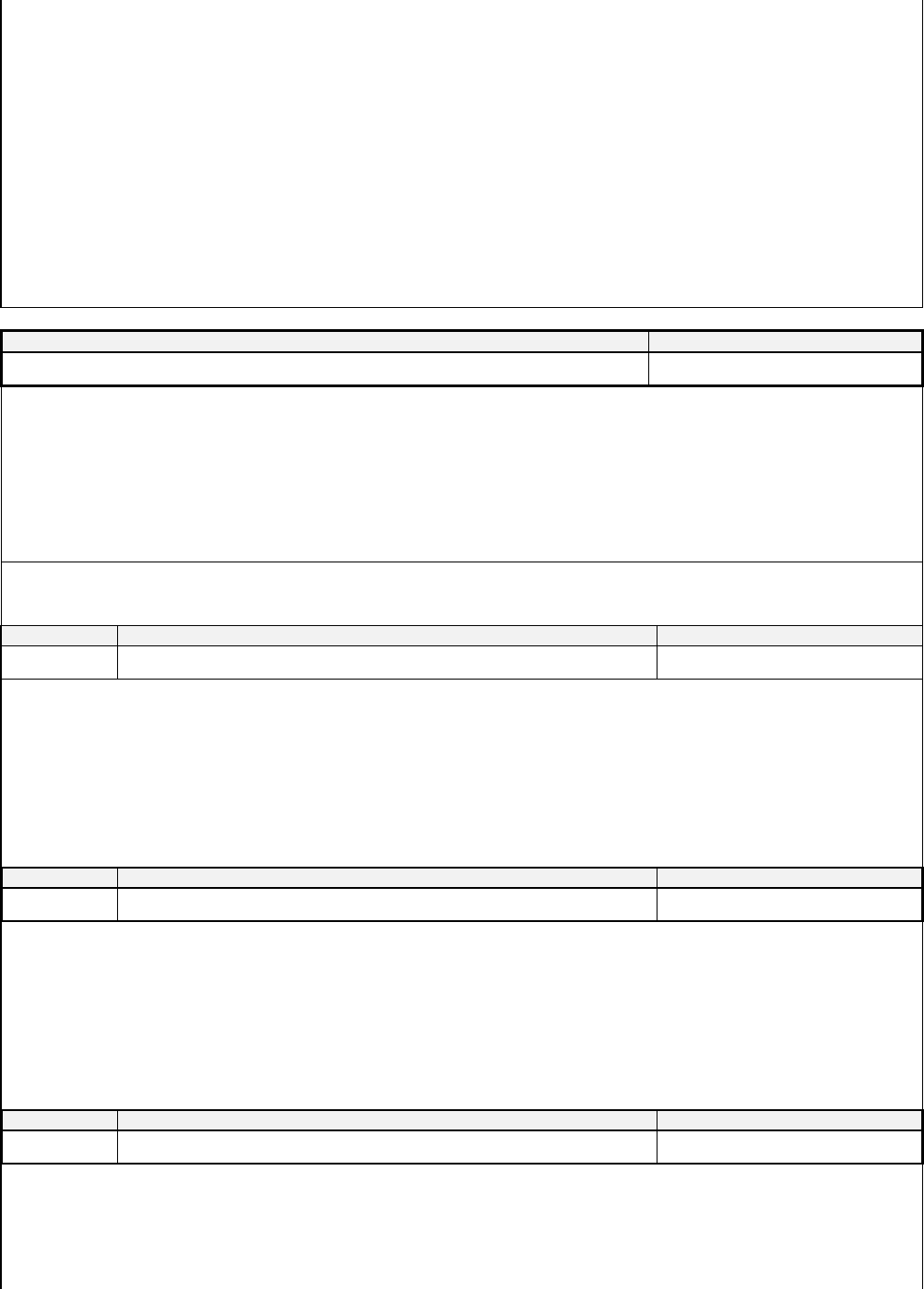
College degree in a technical or managerial related discipline [Note: a high school diploma or HS equivalency
certificate is acceptable with additional years of experience as defined in the next category).
Typical Experience:
Greater than five (5)* years practical experience in a Cybersecurity, Engineering, T&E or A&A (formerly C&A)
related field.
Have worked with Information Assurance tools such as DISA Enterprise Mission Assurance Support Service
(eMASS), Assured Compliance Assessment Solution (ACAS) and may be required to hold a Full Security
Control Assessor qualification.
*Without college degree, greater than seven (7) years required.
Additional Guidelines:
None
Labor Category
SCA Category
SPECIALIST, QUALITY CONTROL
NO
GENERAL DUTIES OR EXPERIENCE:
Solve technical problems. Trained in the skills and techniques related to engineering. Possess a practical
understanding of engineering concepts. Assure that the product and its manufacturing process meet quality and
safety standards. Testing equipment to make sure that the manufacturing process operates effectively and safely.
Able to interpret plans and drawings and contribute to the design and fabrication of test specimens. Should have
experience in computer aided drafting (CAD), ability to prepare shop drawings for model construction, and be
familiar with material specifications and fabrication methods.
ADDITIONAL REQUIREMENTS
None
Level
eCraft Title
eCraft Code
I
SPECIALIST, QUALITY CONTROL I
SQC1
Typical Education:
High school Diploma, related military experience, trade/industrial school graduate or GED equivalent.
Typical Experience:
Meet or exceed the minimum education and technical requirements.
Additional Guidelines:
None
Level
eCraft Title
eCraft Code
II
SPECIALIST, QUALITY CONTROL II
SQC2
Typical Education:
High school Diploma, related military experience, trade/industrial school graduate or GED equivalent.
Typical Experience:
3 years professional experience related to field.
Additional Guidelines:
None
Level
eCraft Title
eCraft Code
III
SPECIALIST, QUALITY CONTROL III
SQC3
Typical Education:
High school Diploma, related military experience, trade/industrial school graduate or GED equivalent.
Typical Experience:
5 years professional experience related to field.

Additional Guidelines:
None
Level
eCraft Title
eCraft Code
IV
SPECIALIST, QUALITY CONTROL IV
SQC4
Typical Education:
High school Diploma, related military experience, trade/industrial school graduate or GED equivalent.
Typical Experience:
10 years professional experience related to field.
Additional Guidelines:
None
Labor Category
SCA Category
SPECIALIST, PUBLIC AFFAIRS
NO
GENERAL DUTIES OR EXPERIENCE:
Public Affairs Specialists serve as a liaison between organization and media representatives and community
groups. They coordinate activities and events with other community relations officers, public affair officials, and
local business representatives for outreach efforts. Public Affairs Specialists serve as the action officer for
planning and execution of local engagement and outreach efforts, and they create or edit written products that
are selected to meet the information and communication needs of the command and its audiences. Public Affairs
Specialist will also prepare and release written information to the public and industry on a program's
responsibilities and achievements.
ADDITIONAL REQUIREMENTS
The duties of the Public Affairs Specialist may include occasional travel, travel by automobile, aircraft, or
embarking on a shop to escort visitors and/or media.
eCraft Title
eCraft Code
SPECIALIST, PUBLIC AFFAIRS
SPA
Typical Education:
Associate or Bachelor's level degree.
Typical Experience:
Journalism, Public Relations, or other related Public Affairs Office position.
Additional Guidelines:
None
Labor Category
SCA Category
SPECIALIST, SECURITY
NO
GENERAL DUTIES OR EXPERIENCE:
Security Specialists provide security risk management guidance pertaining to the protection of advanced
technology, make access eligibility determinations in accordance with Navy SAP Nomination Process, and
review documentation required for classified information systems in accordance with the current regulations.
They may also conduct site surveys and physical security accreditations, interpret current security policies, and
implement organization security policies and procedures.
ADDITIONAL REQUIREMENTS
None
Level
eCraft Title
eCraft Code
I
SPECIALIST, SECURITY I
SS1
Typical Education:

Bachelor's level degree.
Typical Experience:
Applicants must have the experiences, education, or training that demonstrates the ability to follow directions, to
read, understand, and retain a variety of instructions, regulations, and procedures. Applicants must demonstrate
the ability or have endorsements that indicate the ability to learn and perform the cited position's duties. Must
demonstrate knowledge of security classification methods, concepts, eligibility for access to classified or
sensitive information and the process for granting personnel security clearances/accesses, and knowledge of
commonly applied security principles, concepts, and methodologies in carrying out information, personnel, and
physical security programs related to the protection of SCI. Specialist should have knowledge of the methods of
performing such duties as conducting inspections and investigations, collecting and analyzing information, etc.,
and skill in weighing the impact of variables such as critical personnel qualifications, variations in building
construction characteristics, access and entry restrictions, equipment availability, and other issues that influence
the course of actions taken in resolving security questions and issues.
Additional Guidelines:
None
Level
eCraft Title
eCraft Code
II
SPECIALIST, SECURITY II
SS2
Typical Education:
Bachelor’s to Ph.D. level degree.
Typical Experience:
In addition to Level I experience, a Security Specialist II specialized experience must demonstrate the following:
Experience in the fields of physical, industrial, information and personnel security participating in SAP Security
Compliance Inspections and Self-Inspections; reporting, documenting and investigating security incidents;
reviewing and applying governing policy including Executive Orders, DoD Security Directives, and the JAFAN
Series; and communicating orally and in writing with staff and supervisors.
Additional Guidelines:
None
Level
eCraft Title
eCraft Code
III
SPECIALIST, SECURITY III
SS3
Typical Education:
Ph.D. or equivalent education level degree.
Typical Experience:
In addition to Level I and II experience, a Security Specialist III demonstrates experience in the fields of
physical, industrial, information and personnel security planning SAP Security Compliance Inspections and Self-
Inspections; leading Investigations of security incidents to include initial reporting and documenting findings in
accordance with policy; reviewing and applying governing policy including Executive Orders, DOD Security
Directives, the SAP Nomination Process, Intelligence Directives and the JAFAN Series; and communicating
orally and in writing to managers, civilians and military contracts across DoD and other agencies.
Additional Guidelines:
None
Labor Category
SCA Category
SPECIALIST, TRAINING
NO
GENERAL DUTIES OR EXPERIENCE:

Depending on the size, goals, and nature of the organization, trainers may differ considerably in their
responsibilities and in the methods they use. Training methods include on-the-job training, operating schools that
duplicate shop conditions for trainees prior to putting them on the shop floor, apprenticeship training, classroom
training, and electronic learning, multimedia programs, distance learning, satellite training, other computer-aided
instructional technologies, videos, simulators, conferences, and workshops.
Training specialists conduct and supervise training and development programs for employees and external
customers. Planning and program development is an important part of the training specialist’s job. In order to
identify and assess training needs, trainers research all problems. The goal of training is to help employees
develop new skills and enhance productivity while improving the quality of work. Training specialists set up
teaching materials and lesson plans prior to the class. They also involve the class and issue completion
certificates at the end of the class.
Training specialists must plan, organize, and direct a wide range of training activities. Trainers respond to
corporate and worker service requests. They consult with onsite supervisors regarding available performance
improvement services. In government-supported training programs, training specialists function as case
managers. They first assess the training needs of clients and then guide them through the most appropriate
training method.
ADDITIONAL REQUIREMENTS
None
Level
eCraft Title
eCraft Code
I
SPECIALIST, TRAINING I
ST1
Typical Education:
Bachelor's level degree in Education, Psychology or related Training Systems discipline.
Typical Experience:
3 years professional experience in curriculum development.
Additional Guidelines:
None
Level
eCraft Title
eCraft Code
II
SPECIALIST, TRAINING II
ST2
Typical Education:
Bachelor's level degree in Education, Psychology or related Training Systems discipline.
Typical Experience:
7 years professional experience in curriculum development.
Additional Guidelines:
None
Level
eCraft Title
eCraft Code
III
SPECIALIST, TRAINING III
ST3
Typical Education:
Master's level degree in Education, Psychology or related Training Systems discipline.
Typical Experience:
10 years professional experience in curriculum development.
Additional Guidelines:
None
Labor Category
eCraft Code
STUDENT
STU
GENERAL DUTIES OR EXPERIENCE:

Students are expected to provide services to perform tasks within the scope of one or more of the following general
disciplines:
Perform human engineering, psychological, physiological and behavioral studies.
Perform literature search and review for specified projects; compile and catalog background material; prepare
summaries and bibliographies.
Assist in the design and/or fabrication and/or test and/or documentation of developmental hardware for
designated projects and state of the art components.
Perform data conversion and coding.
Design, develop, test and document computer programs incidental to the performance of a specific
program/project or research effort.
Utilize microprocessors, minicomputers, terminals and graphic displays as tools for data analysis and data
reduction in connection with specific research projects.
Review, analyze and document specific operational procedures; perform feasibility studies. Prepare technical
reports documenting the work performed.
Prepare engineering drawings or schematics for designed projects. Analyze charts, aerial photographs and maps
utilizing photogrammetric and cartographic techniques.
Perform reliability, maintainability, and availability analyses of specified devices or subsystems.
Perform operation and analysis studies of naval tactics and equipment requiring engineering, operations analysis
and computer sciences.
Analyze existing weapons and sensor systems to determine estimates of performance based on limited
information, operations and analysis and engineering studies.
ADDITIONAL REQUIREMENTS
None
eCraft Title
eCraft Code
STUDENT
STU
Typical Education:
An academically eligible undergraduate or graduate student in good standing at an accredited university working
towards a Bachelor's or Masters level degree with no required professional experience.
Additional Guidelines:
None
Labor Category
SCA Category
SUBSAFE PROGRAM DIRECTOR
NO
GENERAL DUTIES OR EXPERIENCE:
1) Establishing and maintaining a robust SUBSAFE training and qualification process.
2) Establish and maintain processes required to ensure all NAVSEA SUBSAFE and Level I requirements are
adhered to and followed.
3) Ensuring all personnel’s “SUBSAFE qualifications” are maintained IAW the requirements as set within this
contract.
ADDITIONAL REQUIREMENTS
NAVSEA Note 5000
eCraft Title
eCraft Code
SUBSAFE PROGRAM DIRECTOR
SPD
Typical Education:
Bachelor's Degree in an engineering discipline from an accredited college or university or ten (10) years’ experience
managing quality programs in lieu of an Engineering Degree. This experience should not have been gained concurrently
with the experience requirements listed in Typical Experience paragraph (2 through (4) below.

Typical Experience:
1) Three (3) years’ experience that has provided a practical knowledge of quality assurance programs and quality control
inspection systems.
2) Three (3) years of specialized experience in performing quality reviews of SUBSAFE/Level I Material work.
3) One (1) years of specialized experience in auditing SUBSAFE and Level I work as required by the organizational
certification by Commander Naval Sea Systems Command.
4)Working knowledge of Naval Sea Command, Naval Surface Warfare Center, Naval Shipyards, and Supervisor of
shipbuilding, Conversion and Repair and Type Commanders' organizations.
Additional Guidelines:
None
Labor Category
SCA Category
SYSTEMS ADMINISTRATOR
NO
GENERAL DUTIES OR EXPERIENCE:
The Systems Administrator administers and supports daily operational requirements of computer network
systems including workstation, file servers, and web servers. Duties typically involve the installation of
hardware, software, systems upgrades, network accounts, network security, and web page design, interface and
updates, and local system design documentation. This administrator will maintain, troubleshoot, and implement
network security tools including firewalls, anti-virus, and intrusion detection services. This Administrator trains
staff on software applicable to their position, assists customers with information technology, monitors system
configuration (hardware and software), and provides instruction on computers and applications.
Certifications. Industry standards for certifications change often and should not be codified in position
descriptions unless certain certifications are required for the specific position sought by a particular contract
AND the certification is not likely to change during the contract development, competition, and award. It is
recommended that verbiage requiring compliance with the Cyber WorkForce (CWF) directives be added to the
contract which will invoke required certifications for this position. It is expected the CWF directives will be
maintained up-to-date with respect to certifications.**
ADDITIONAL REQUIREMENTS
Compliance with the Cyber WorkForce (CWF) directives, including any required certifications
Level
eCraft Title
eCraft Code
I
SYSTEMS ADMINISTRATOR I
SA1
Typical Education:
Bachelor's level degree in Electrical/Electronic/Computer Engineering, Computer Science, or Information
Systems.
Typical Experience:
No required professional experience.
Additional Guidelines:
None
Level
eCraft Title
eCraft Code
II
SYSTEMS ADMINISTRATOR II
SA2
Typical Education:
Bachelor’s level degree in Electrical/Electronic/Computer Engineering, Computer Science, or Information
Systems.
Typical Experience:
3 years professional experience in systems administration.
Additional Guidelines:

None
Level
eCraft Title
eCraft Code
III
SYSTEMS ADMINISTRATOR III
SA3
Typical Education:
Master’s level degree in Electrical/Electronic/Computer Engineering, Computer Science, or Information
Systems.
Typical Experience:
7 years professional experience in systems administration.
Additional Guidelines:
None
Level
eCraft Title
eCraft Code
IV
SYSTEMS ADMINISTRATOR IV
SA4
Typical Education:
Master’s level degree in Electrical/Electronic/Computer Engineering, Computer Science, or Information
Systems.
Typical Experience:
10 years professional experience in systems administration.
Additional Guidelines:
None
Labor Category
SCA Category
TECHNICAL WRITER, SUPERVISORY
NO
GENERAL DUTIES OR EXPERIENCE:
Develops, writes and edits material for reports, manuals, briefs, proposals, instructions books, catalogs and
related technical and administrative publications concerned with work methods and procedures, and installation,
operation, and maintenance of machinery and other equipment. Acts as supervisor to other Technical Writers.
Observes production, developmental, and experimental activities to determine operating procedure and detail.
Interviews production and engineering personnel and reads journals, reports, and other material to become
familiar with product technologies and production methods. Organizes material and completes writing
assignment according to set standards regarding order, clarity, conciseness, style, and terminology. Reviews
published materials and recommends revisions or changes in scope, format, content, and methods of work and
revisions. Edits material prepared by other writers or plant personnel. May specialize in writing material
regarding work methods and procedures.
ADDITIONAL REQUIREMENTS
None
eCraft Title
eCraft Code
TECHNICAL WRITER, SUPERVISORY
TECW
Typical Education:
Bachelor's level degree in any field.
Typical Experience:
3 years work related experience in technical writing/editing.
Additional Guidelines:
None
